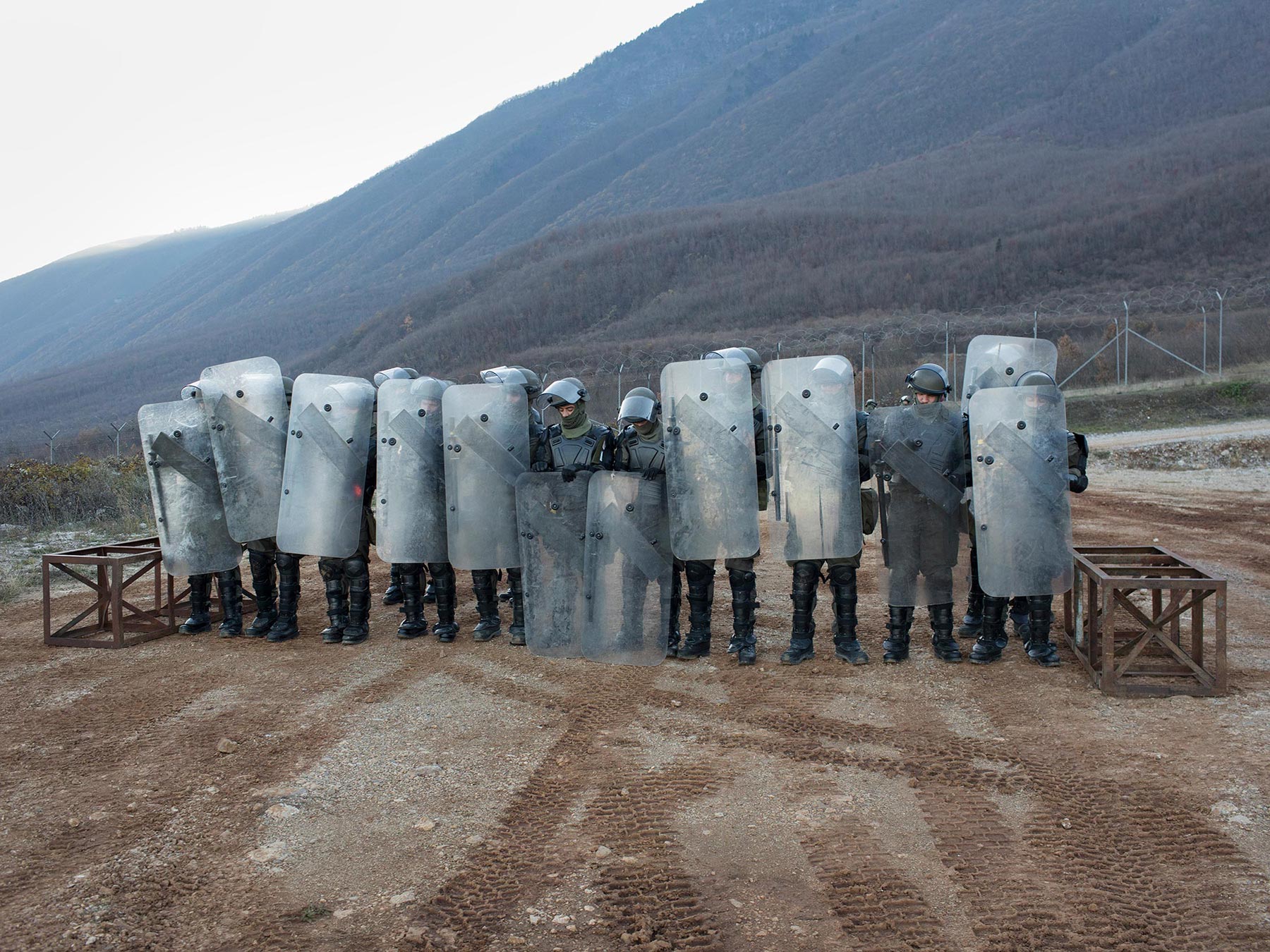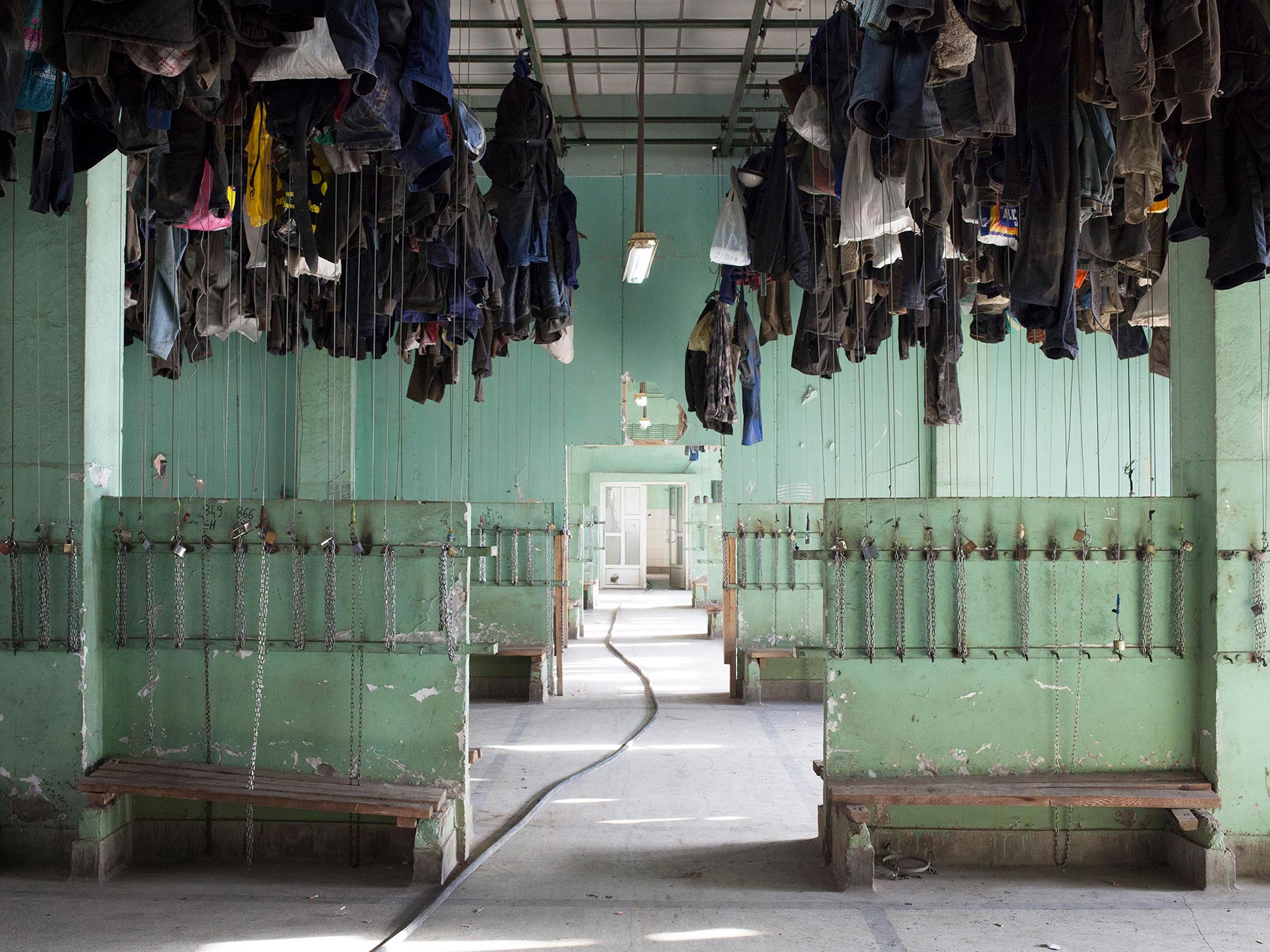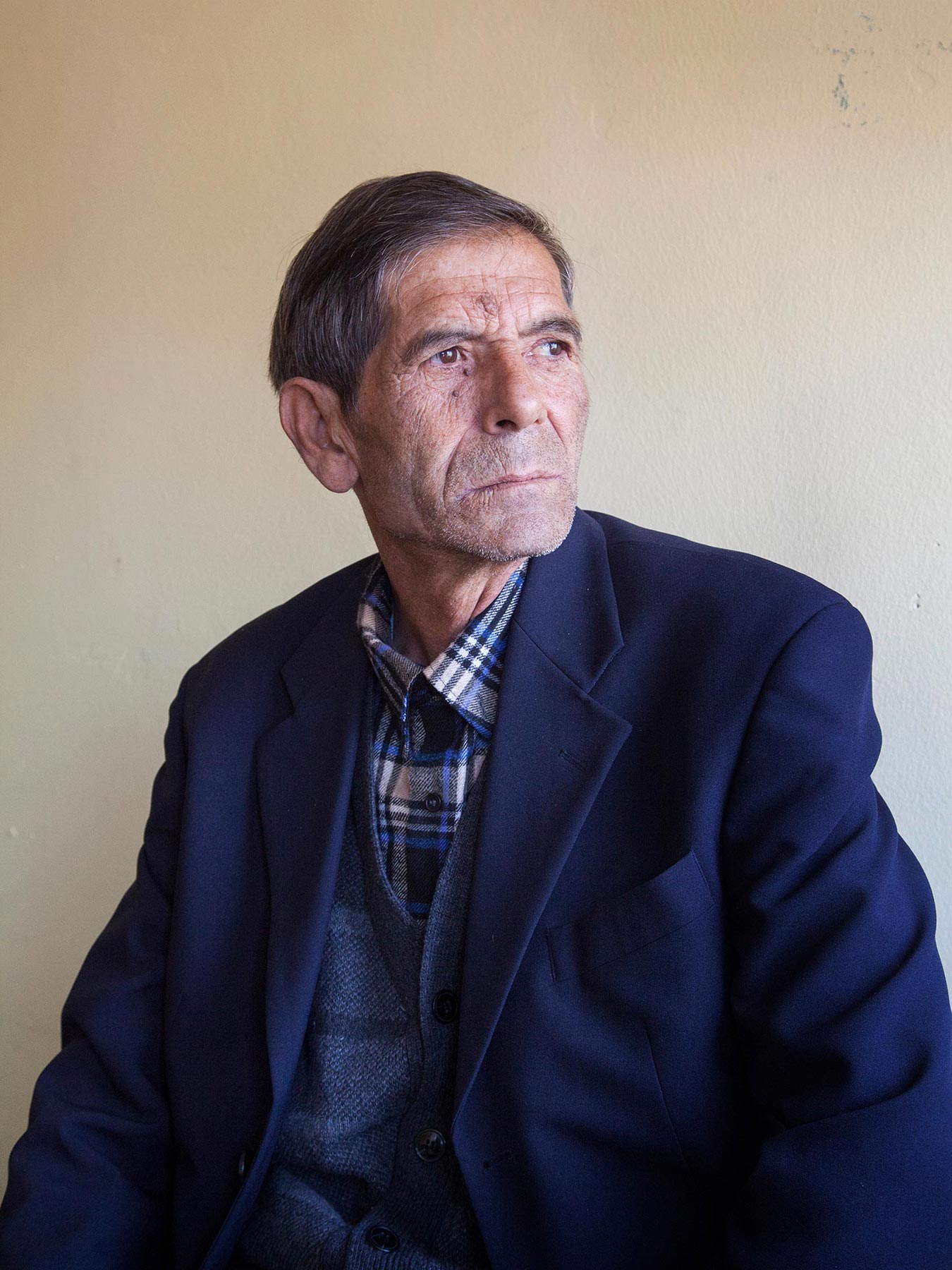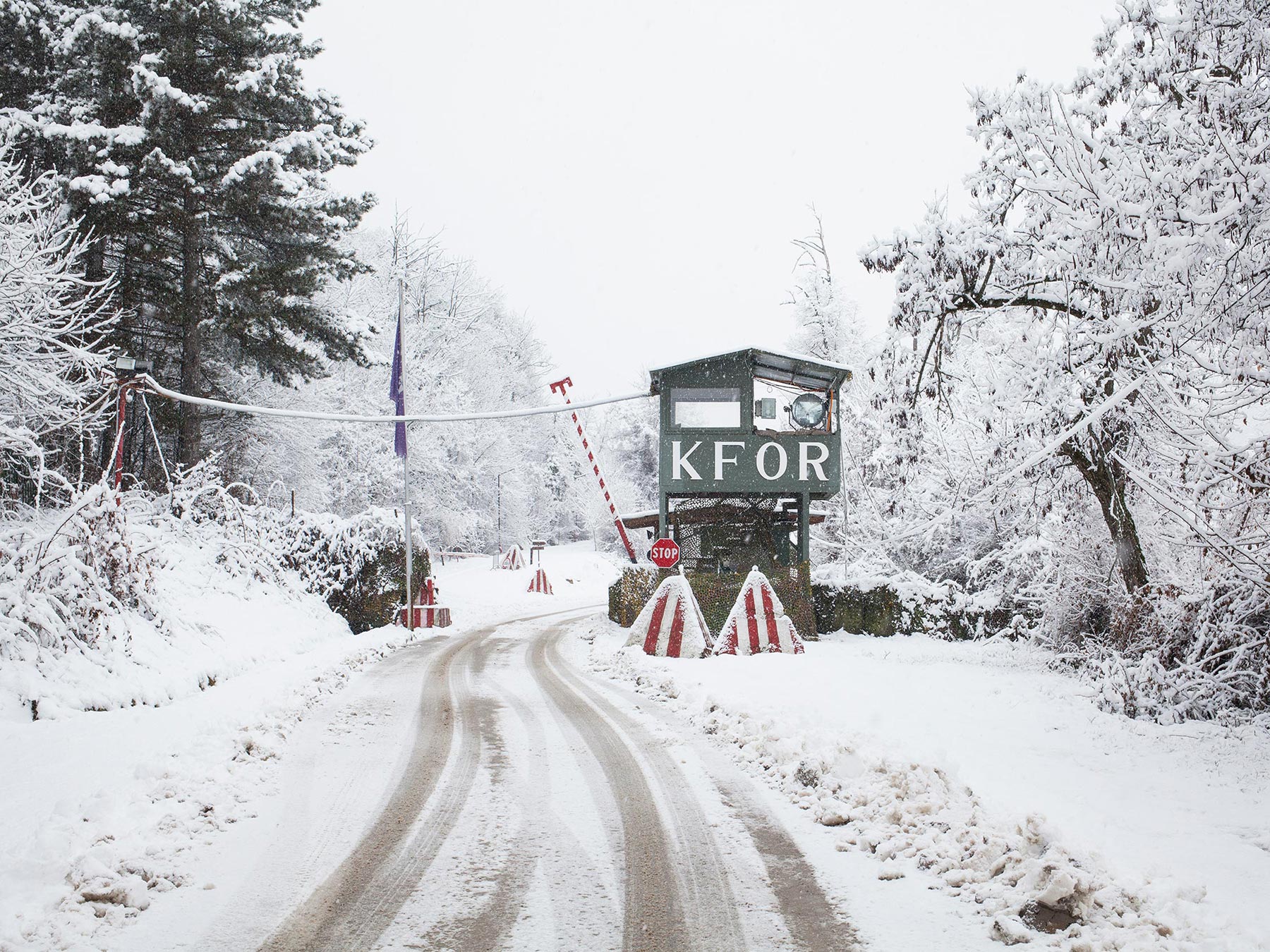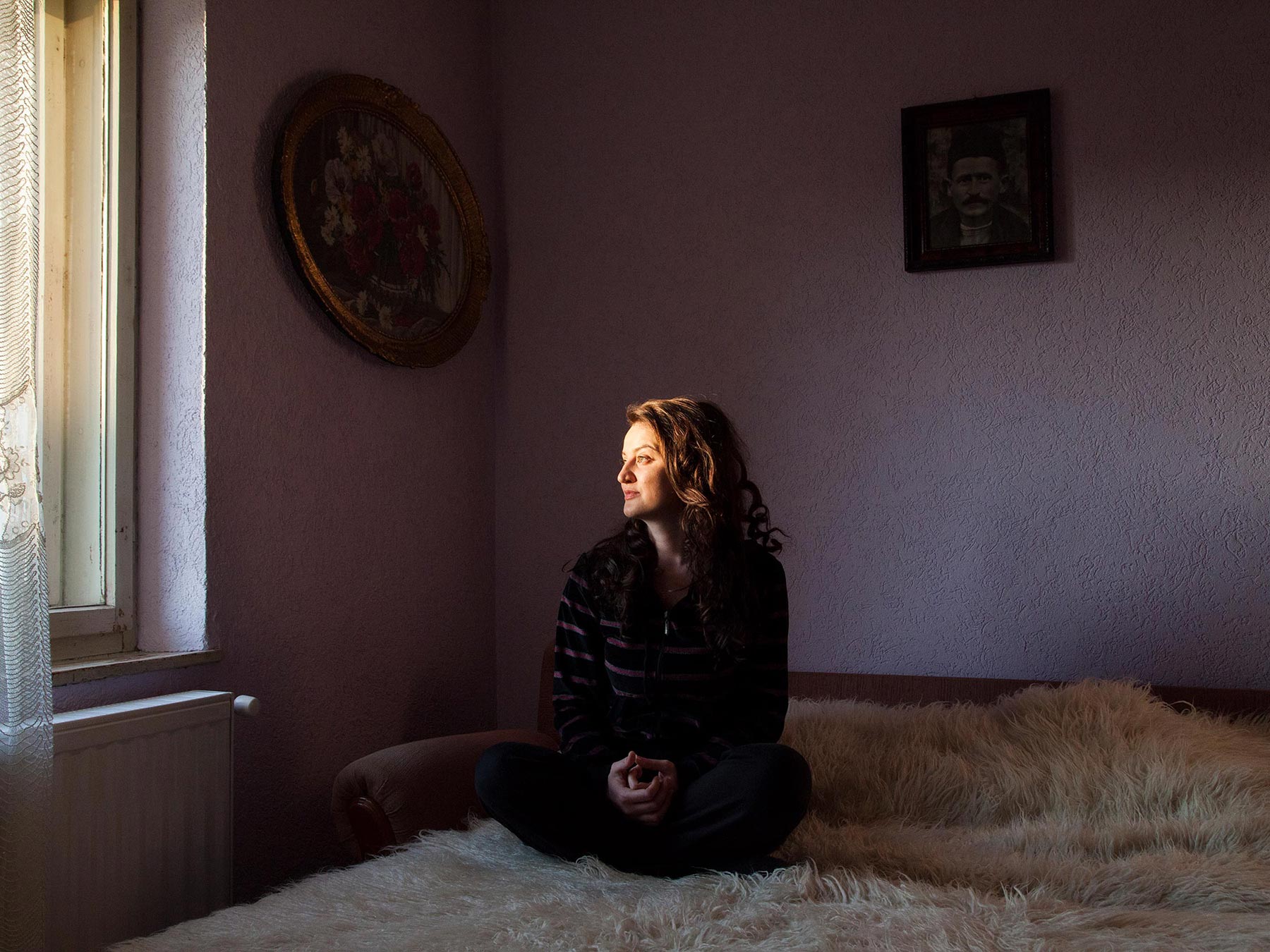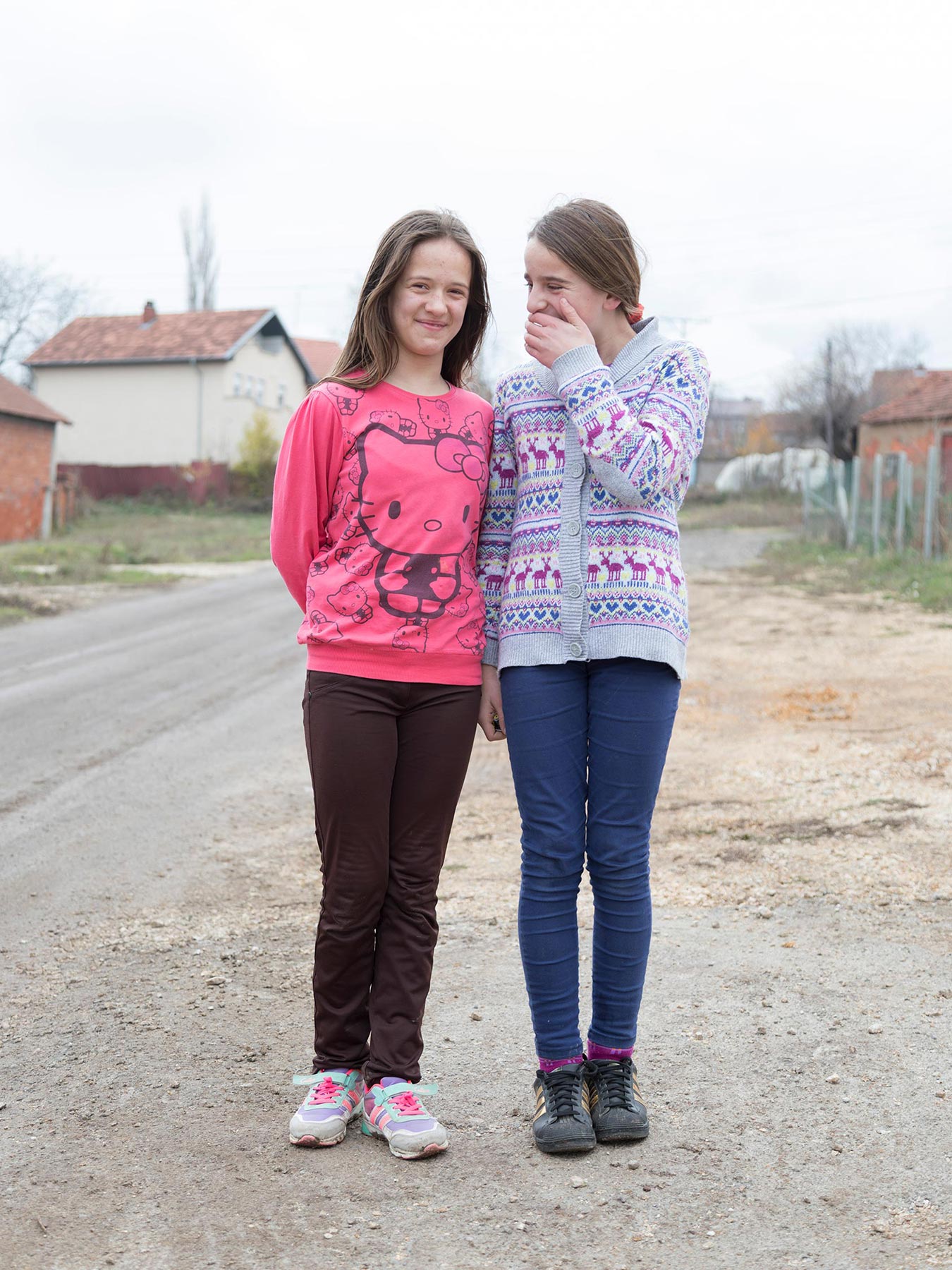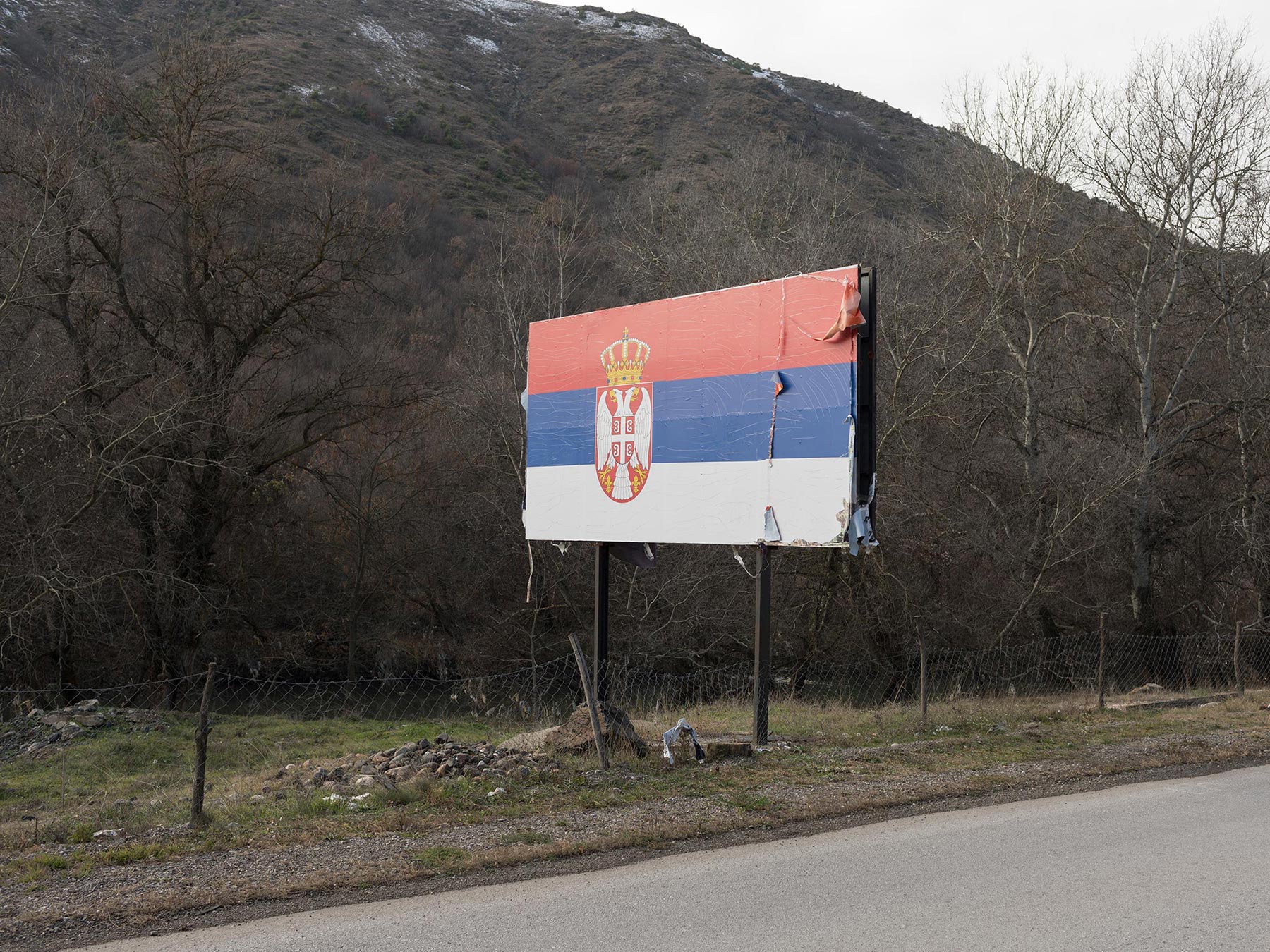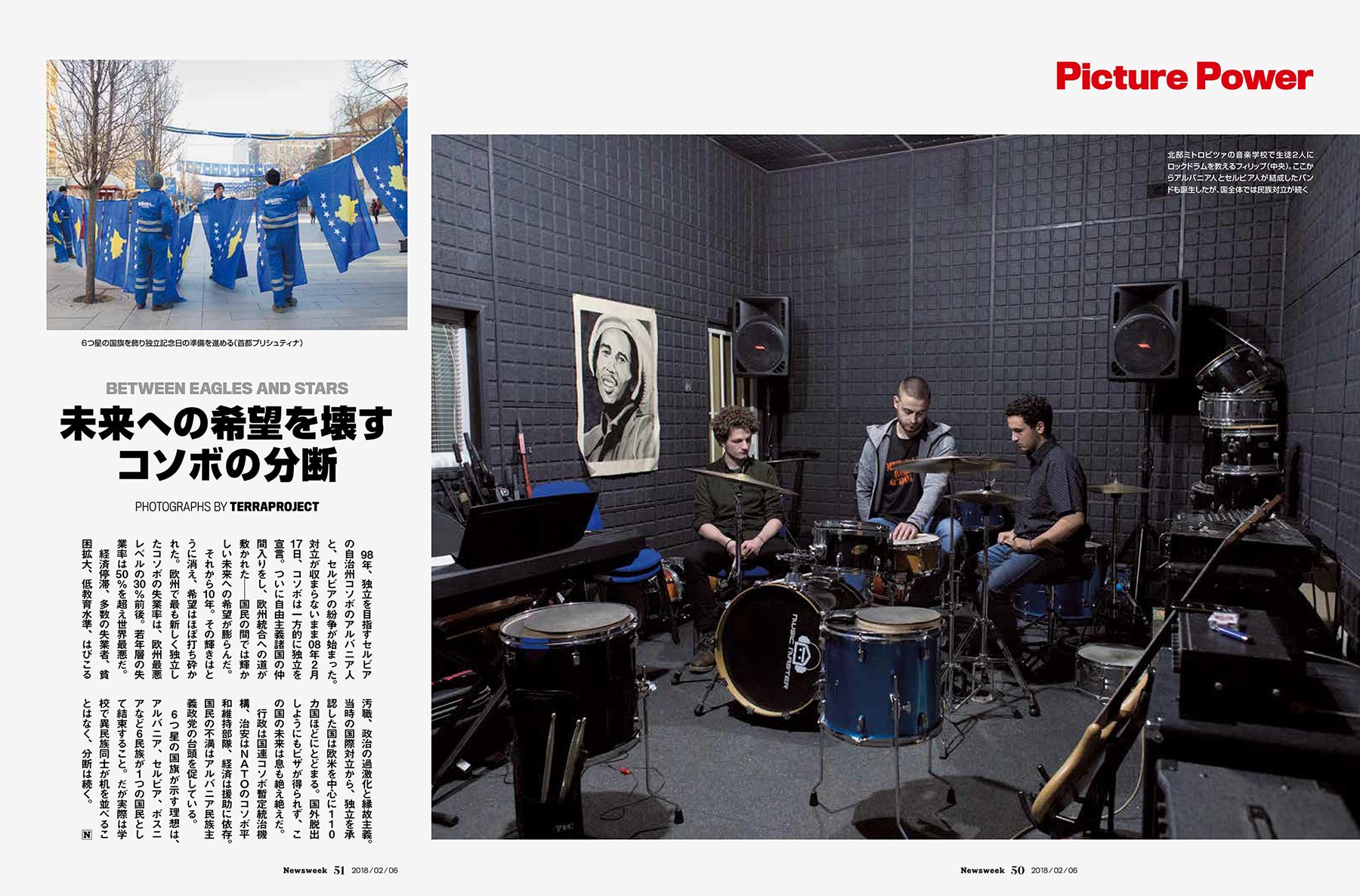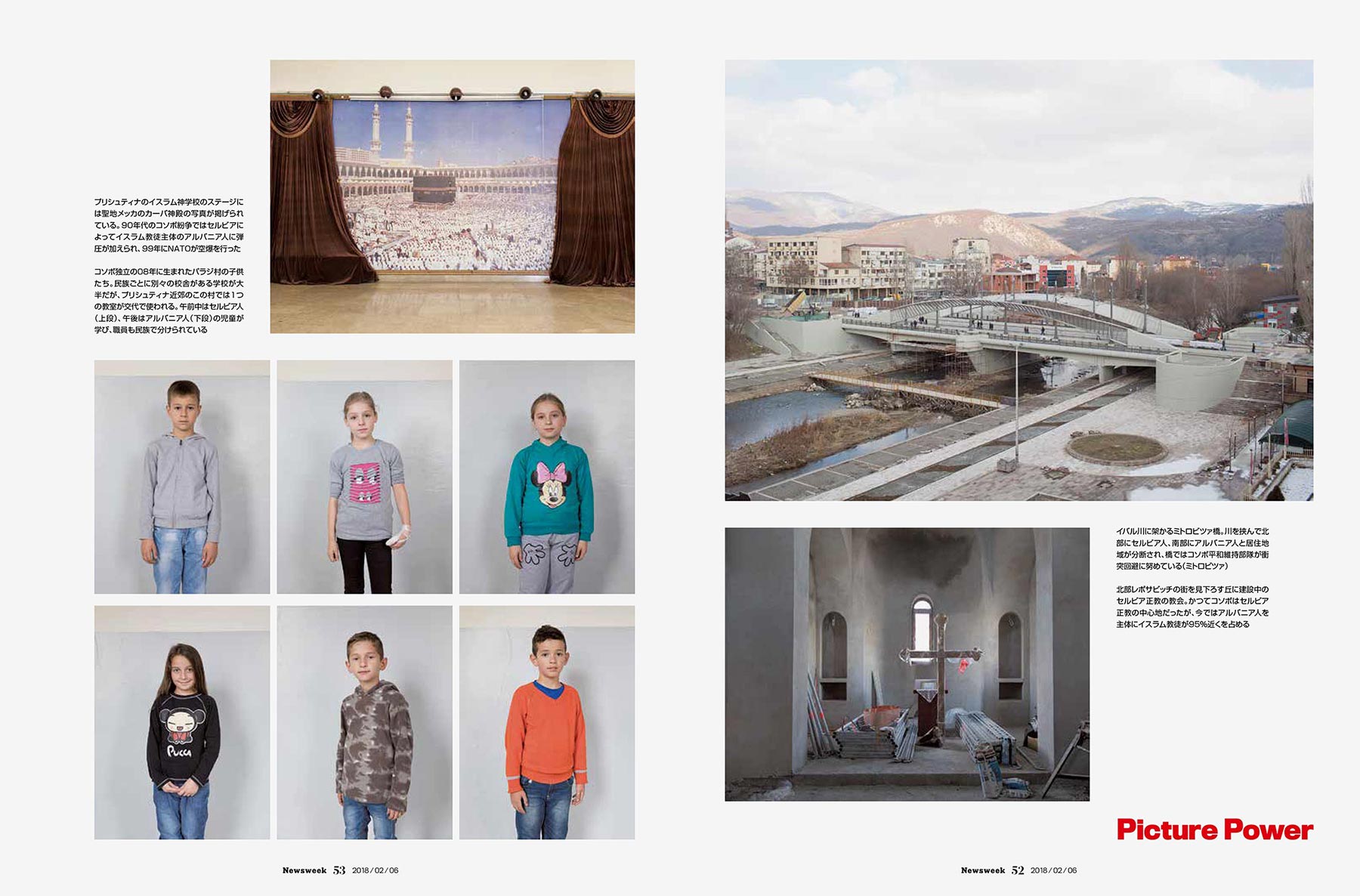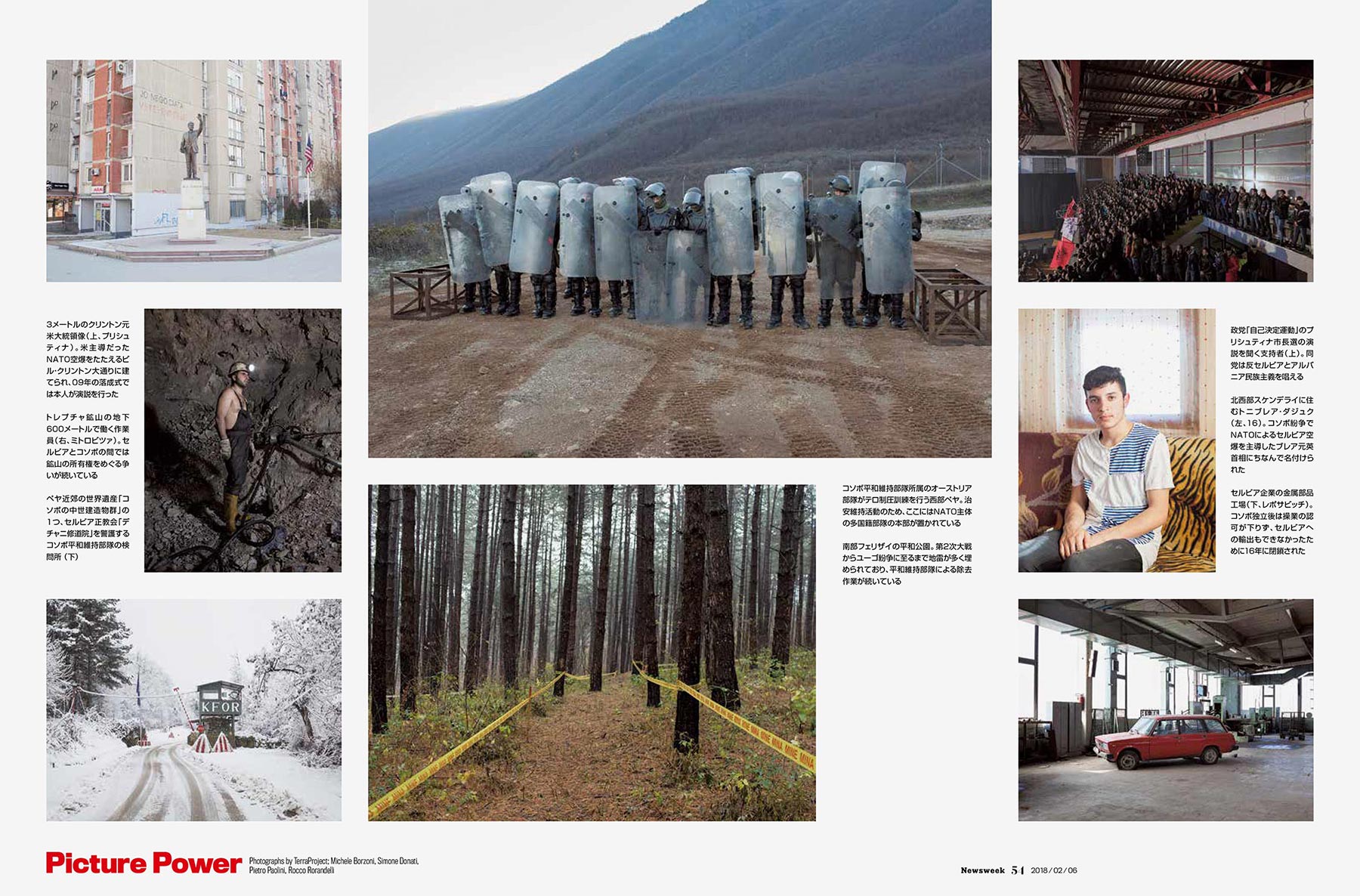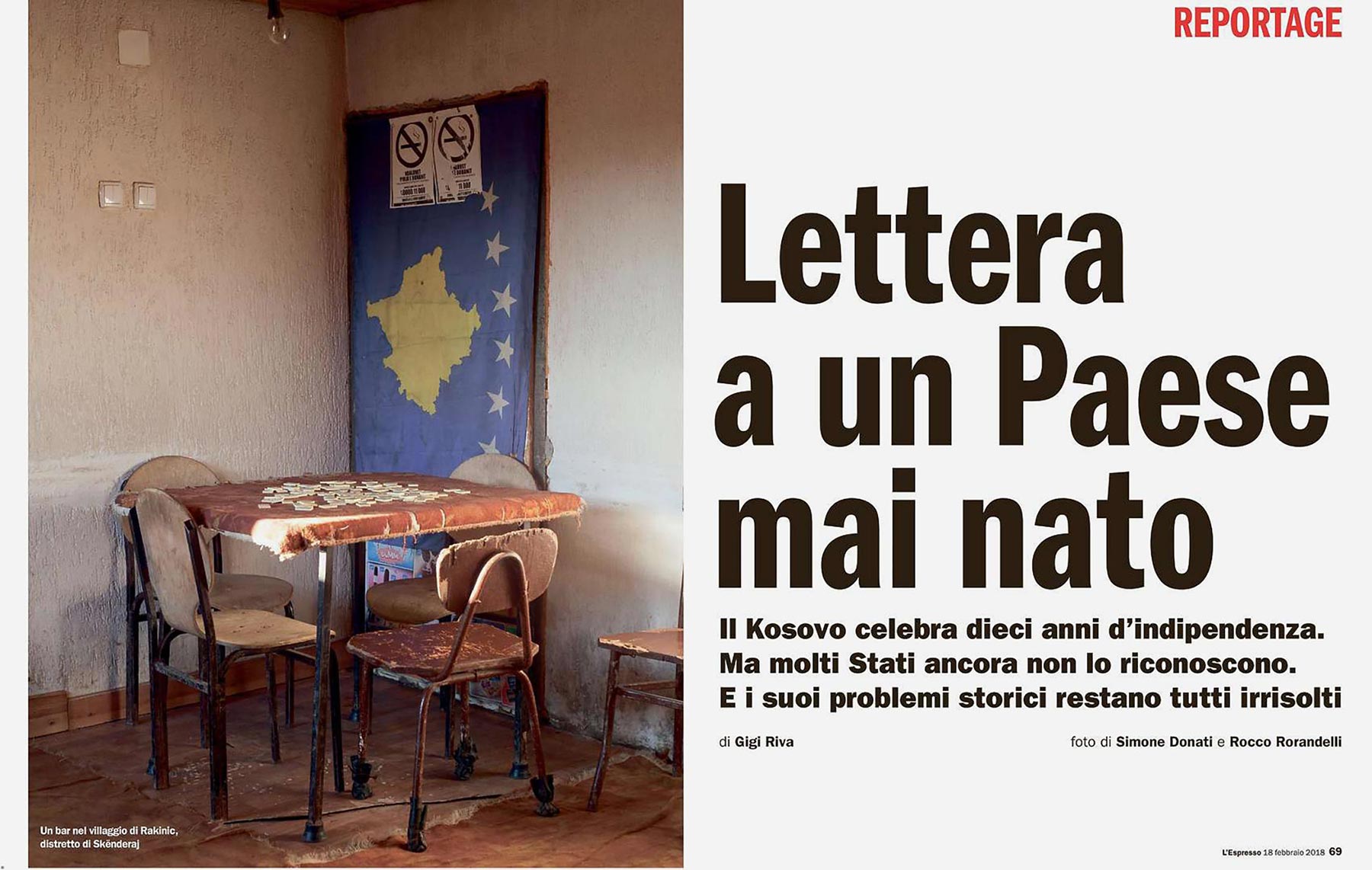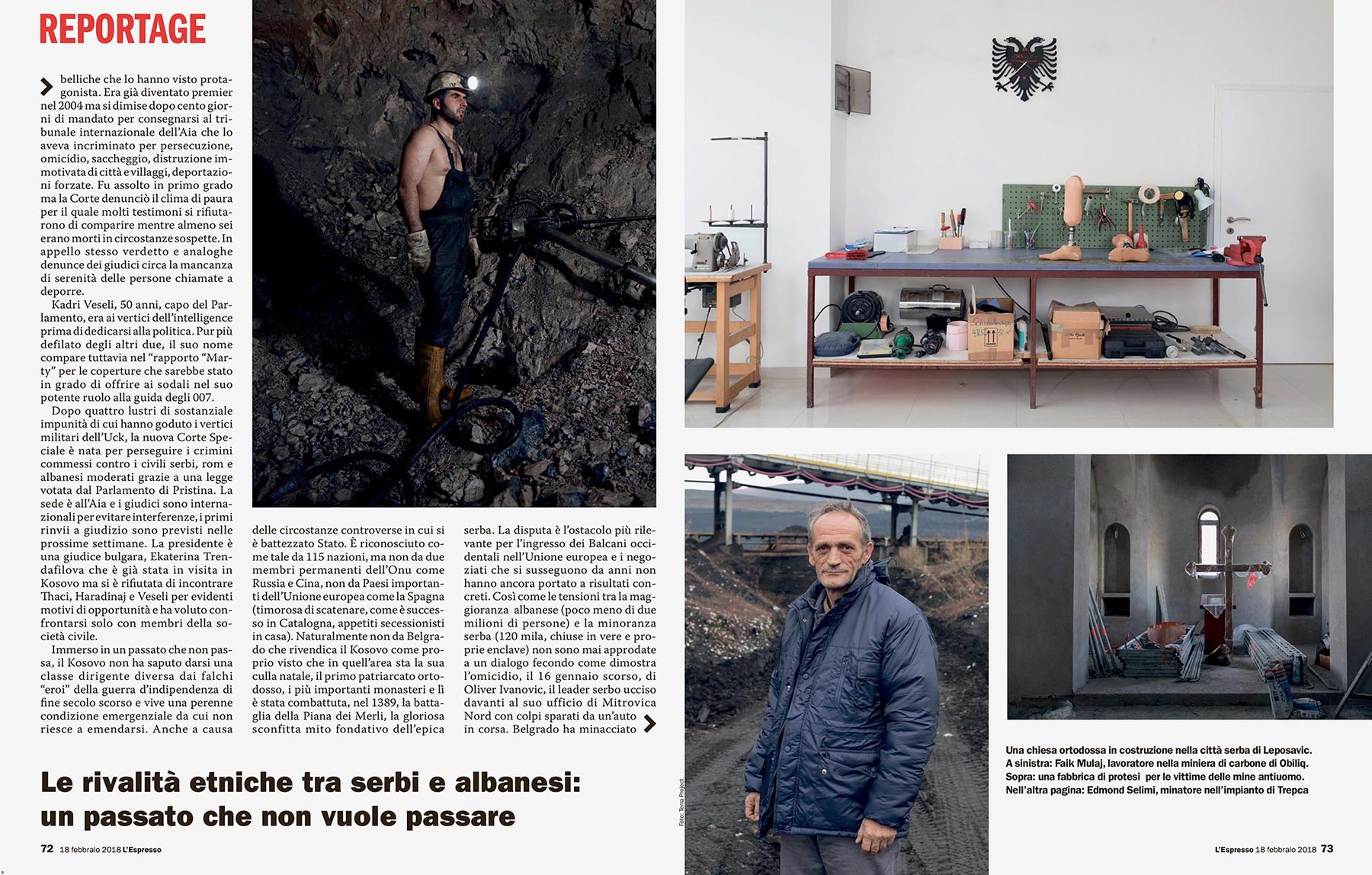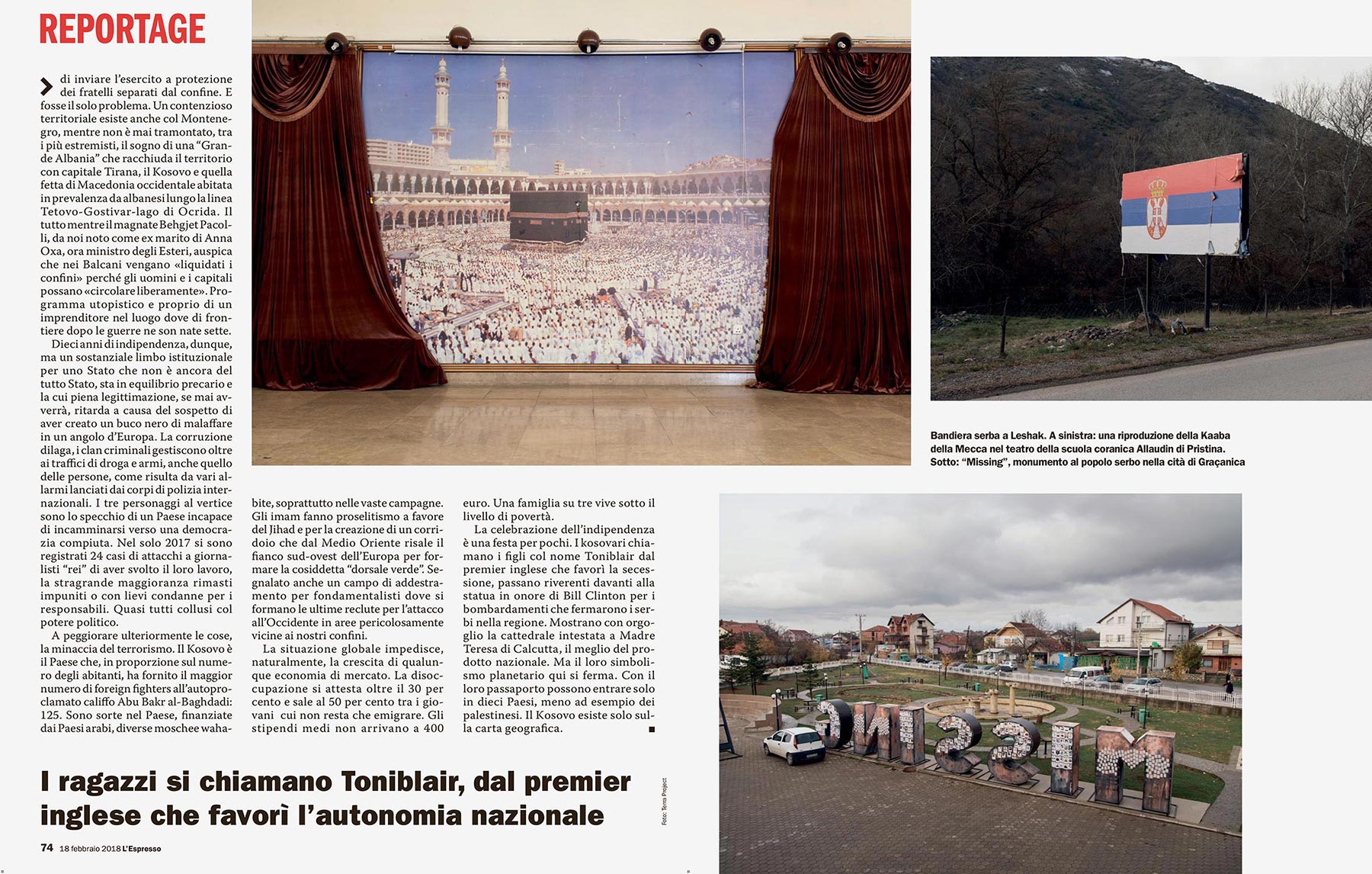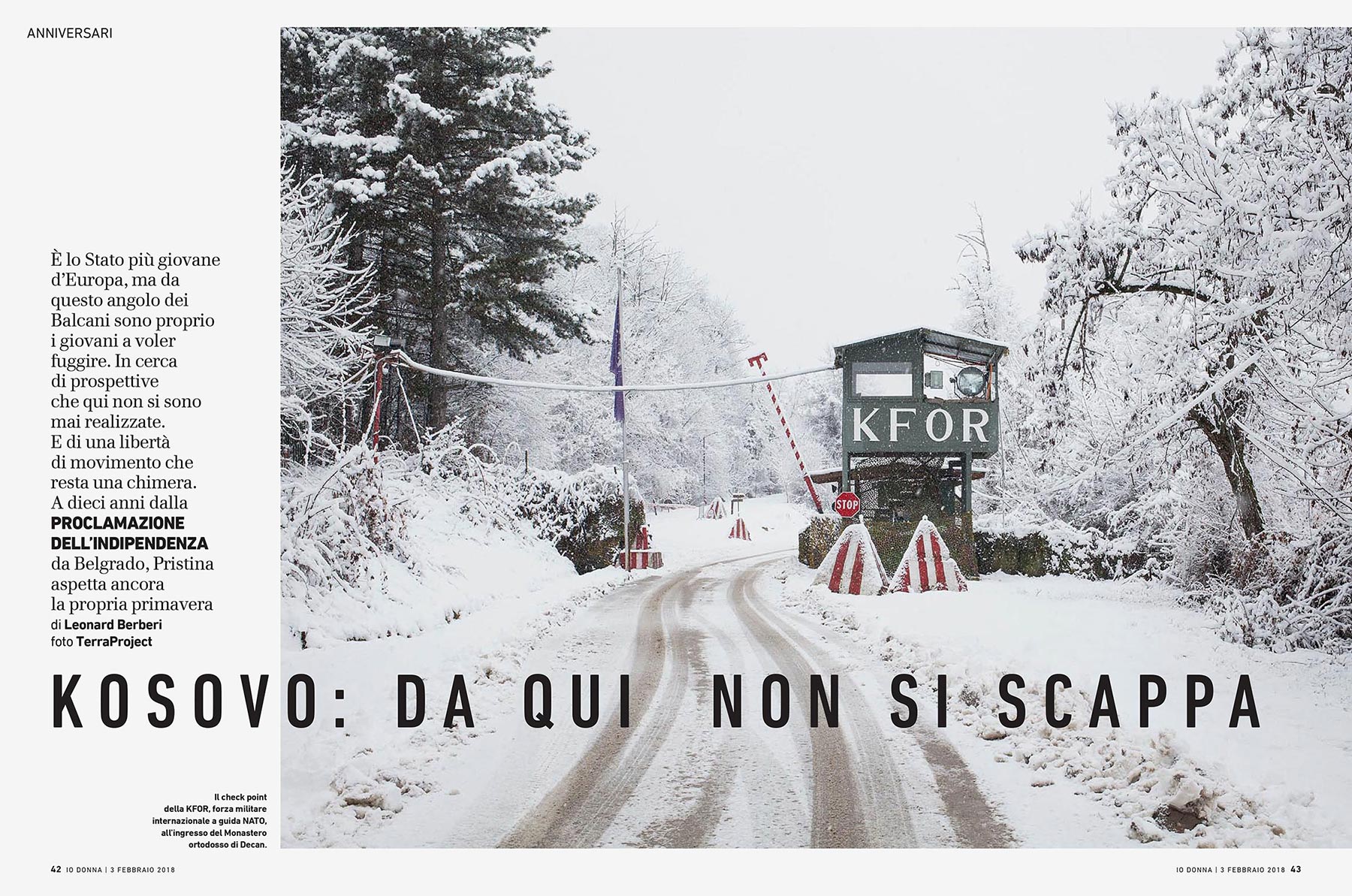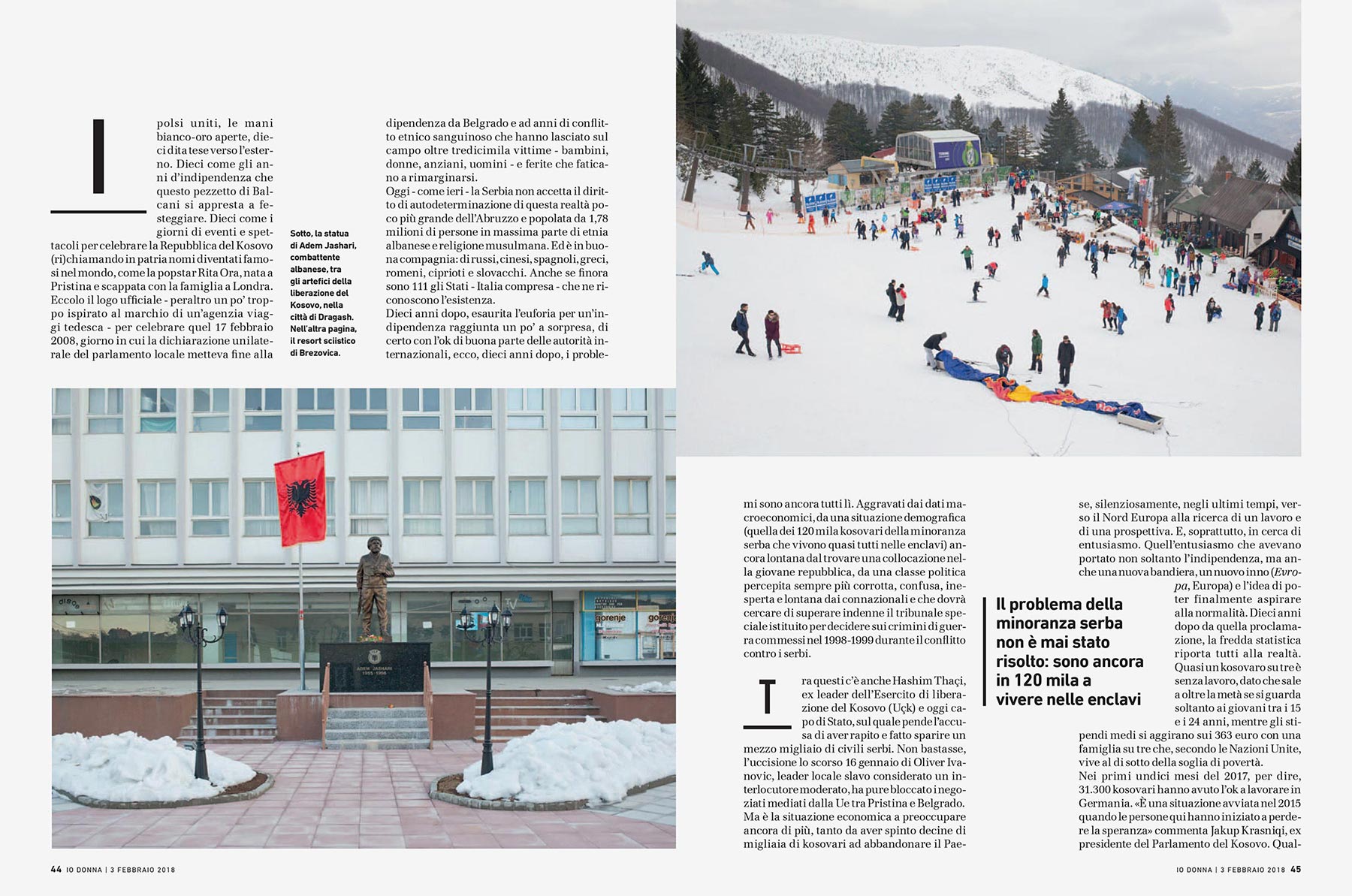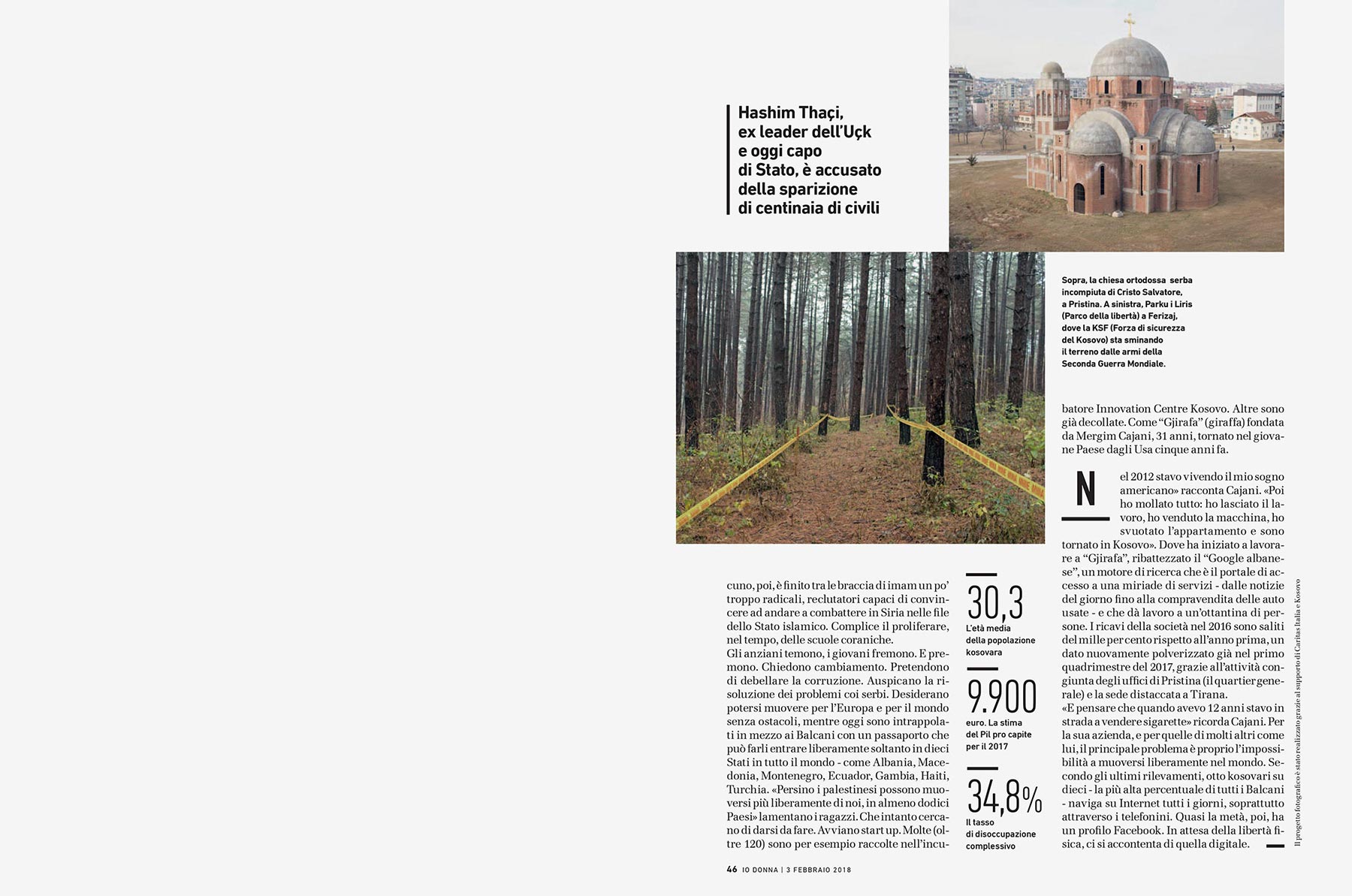Counter riot control exercises by the Austrian army inside “Villaggio Italia”, near Pejë / Peć, the headquarter for the Multinational Battle Group West of KFOR, a NATO-led international peacekeeping force which is responsible for establishing a secure environment in Kosovo.
When Kosovo unilaterally declared its independence from Serbia, on 17th February 2008, hopes for a bright and better future were high. For the vast majority, it was a dream come true: Kosovo could finally stand among the free nations of the world, and the way for its European integration was thus paved.
Ten years after that day, the state of Kosovo’s affairs looks dire and the hopes of its people have been largely dashed. The country with the youngest population in Europe also has the highest unemployment rate (33%), which reaches a world’s low when it comes to its youth (60%). Economic paralysis, rampant unemployment, increasing poverty, poor educational standards, widespread corruption, extremism and nepotism, topped by the virtual impossibility of traveling abroad due to the exclusion of Kosovo from visa liberalization, are choking the future of this country, still not universally recognized as an independent State. Institutions heavily rely on the presence of foreign armies, UN missions and NGOs, while the country’s economy depends on foreign aid. On the political scene, the rise of the nationalist movement Vetevendosje is symptomatic of the mounting disaffection over the country’s isolation and stagnation. National identity seems at times more of a foreign-imposed undertaking, as its 6 main ethnicities (Albanians, Serbs, Turks, Gorani, Romani and Bosnian) stand close only in the official country flag, represented by golden stars, while in real life they carry on separate lives.

Portrait of Venera Poteri, law student, employed at the polling station n. 26 in the Linguistic faculty of Prishtina/Priština during the ballot vote for the election of the new mayor.
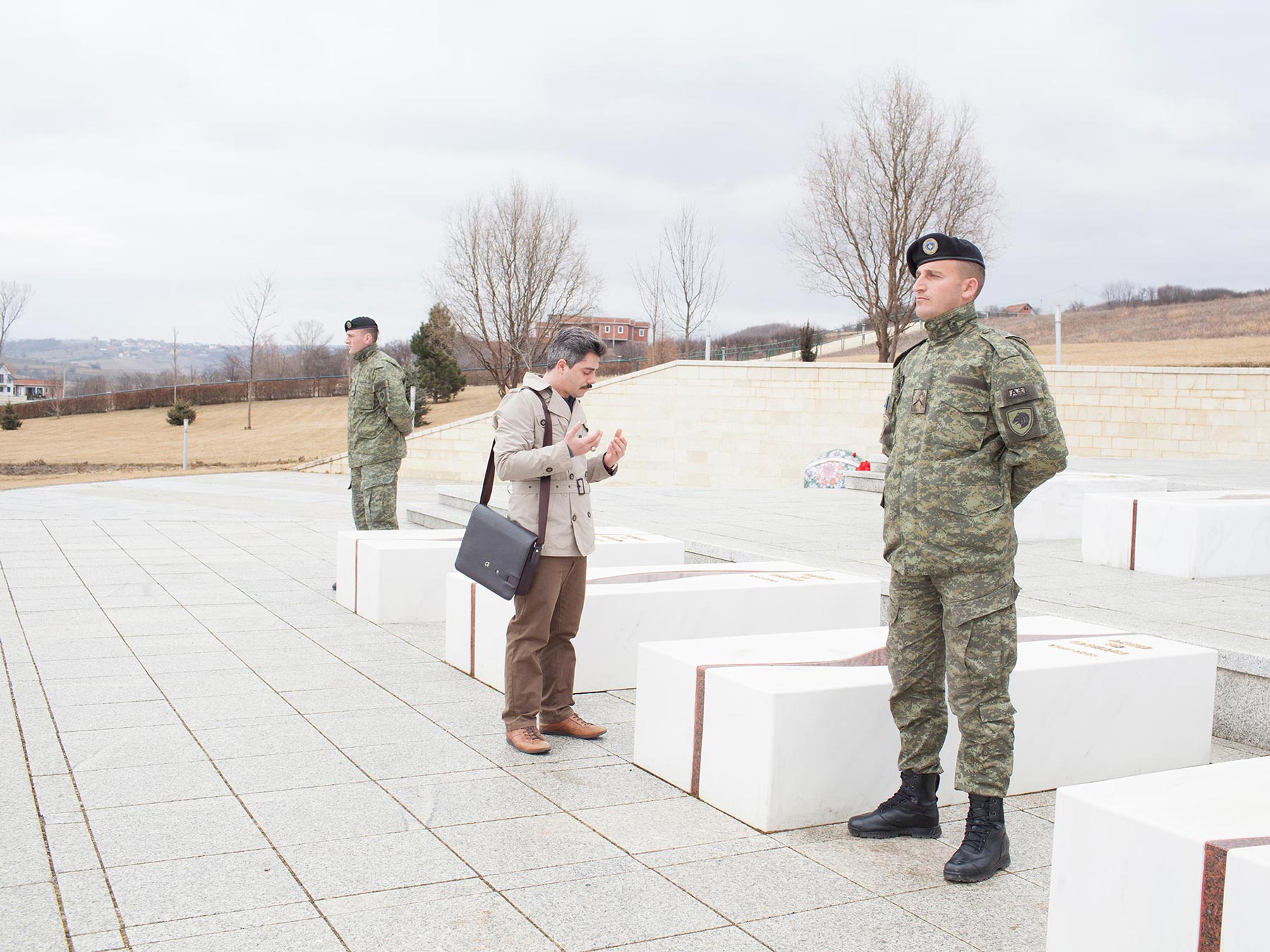
Visitor praying in Adem Jashari mausoleum of Prekaz. He is considered one of the heroes of liberation by the Albanian Kosovars.
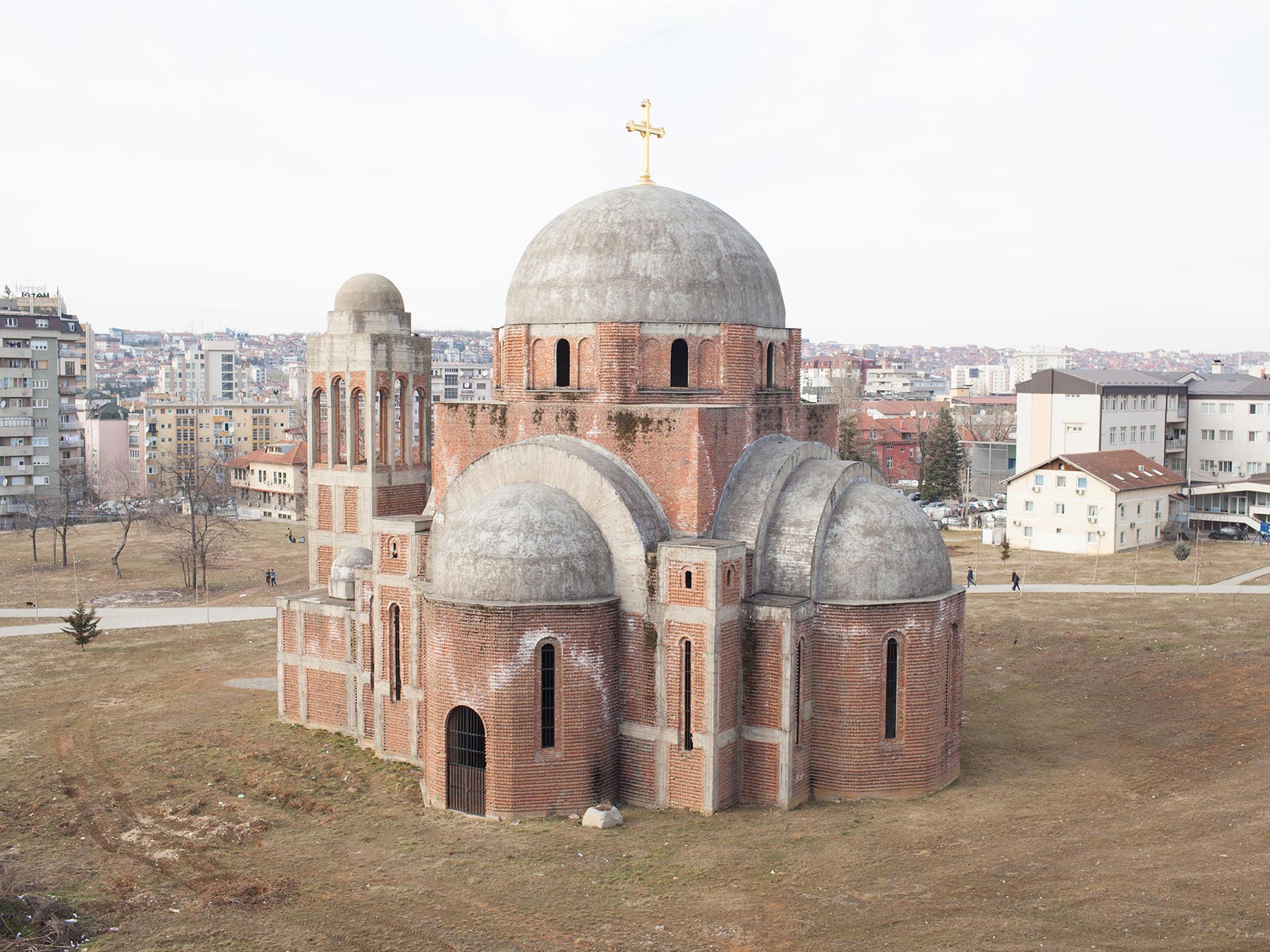
View of the church of Christ the Saviour in Prishtina/Priština, an unfinished Serbian Orthodox Christian church whose construction began in 1995 on land now contended by the University.
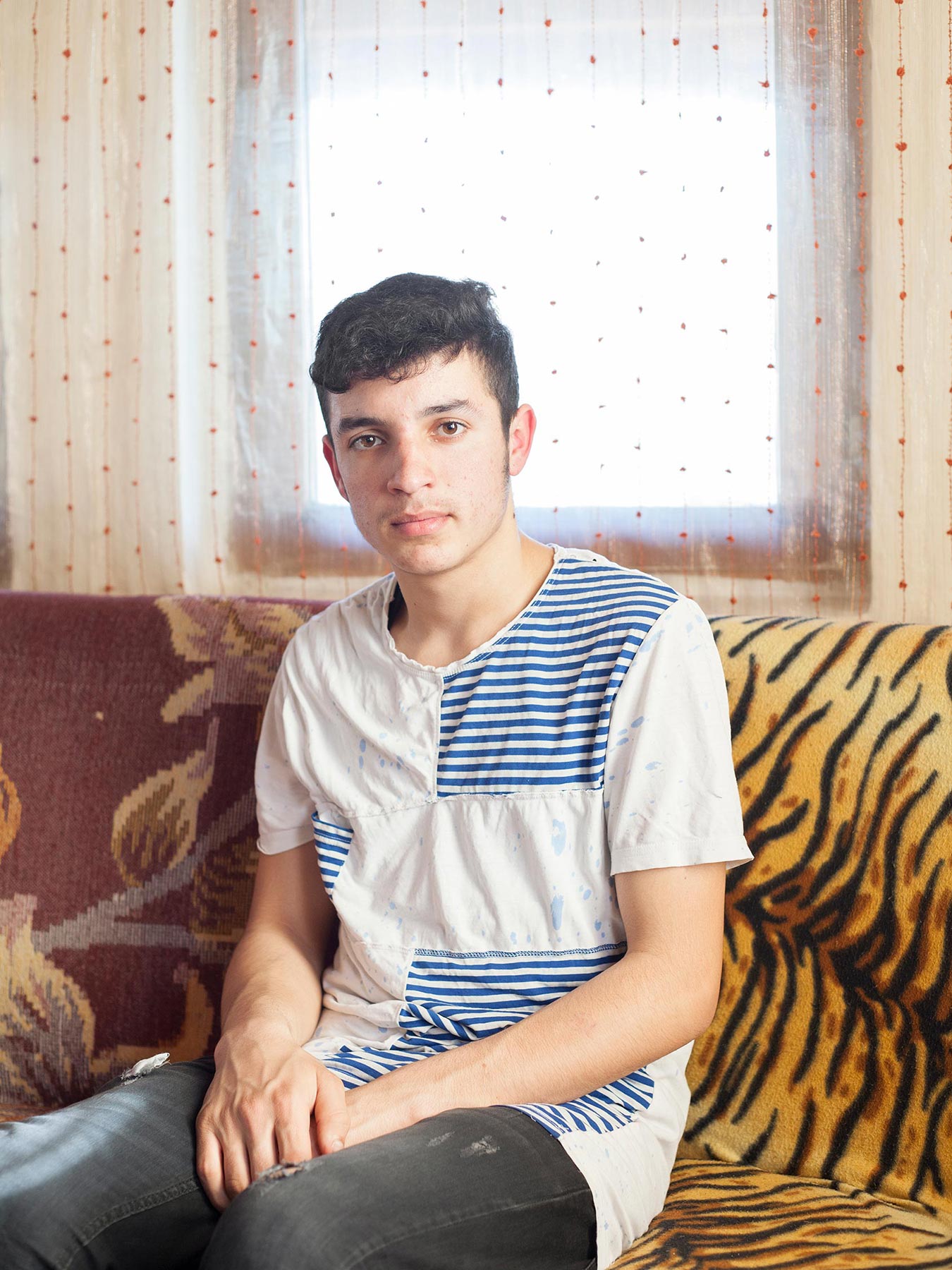
Toniblair Dajaku, 16 years old in the village of Rakinic in the municipality of Skënderaj/Srbica. He was named in honor of the former UK prime minister Tony Blair for the support during the war with the former Yugoslavia.

View of the Kaaba in Mecca on a photograph mounted in the theater of Allaudin Koranic school of Prishtina/Priština.

View of the Mitrovica bridge and the Ibar river that divides the northern Serbians-majority part of the town from the southern Albanian-majority one.
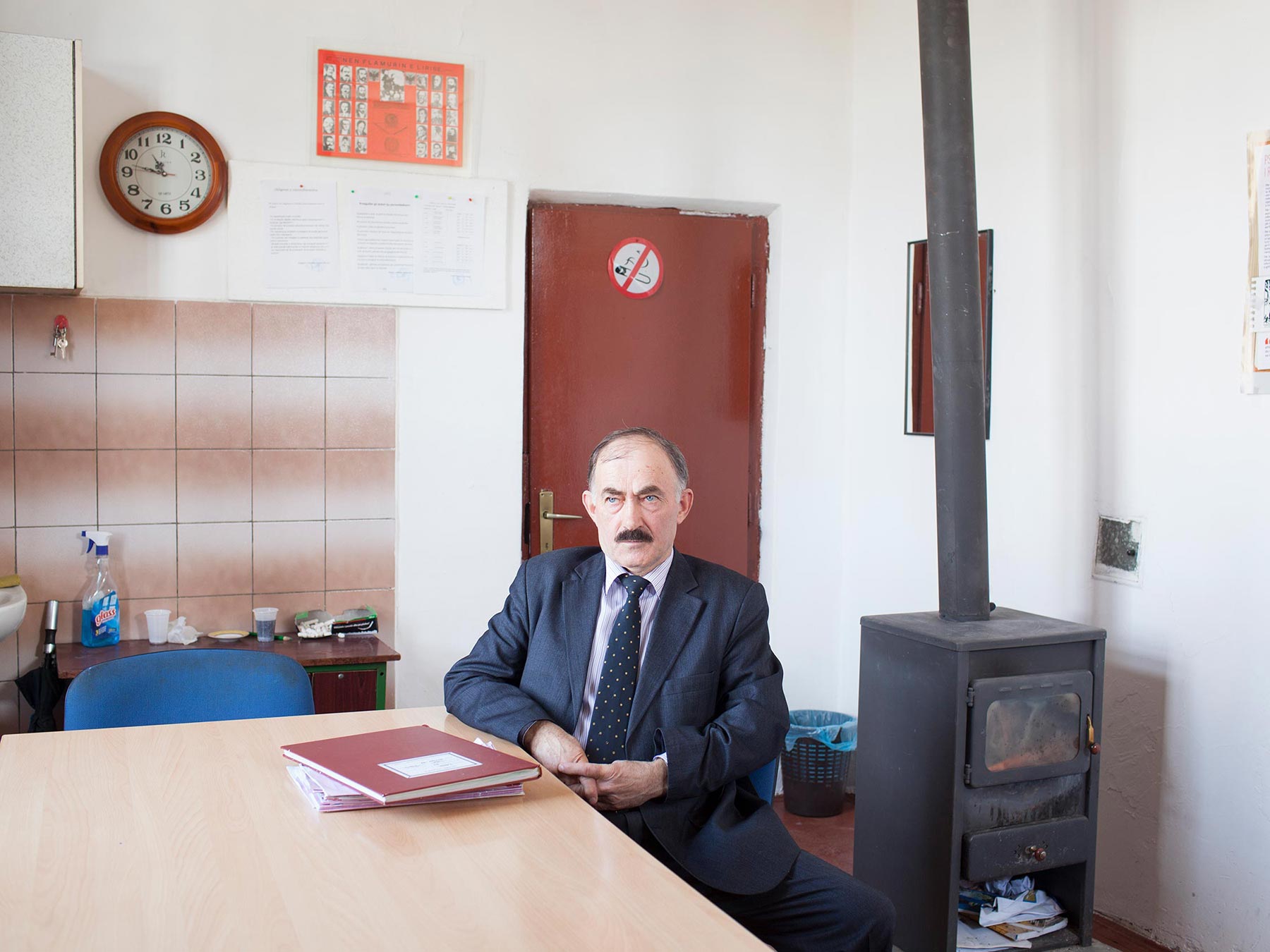
Beqir Murati, 64 years old, professor of chemistry of the divided school of Rubofc/Rubovce. The school is divided inside by a wall, separating Serbian and Albanian students.
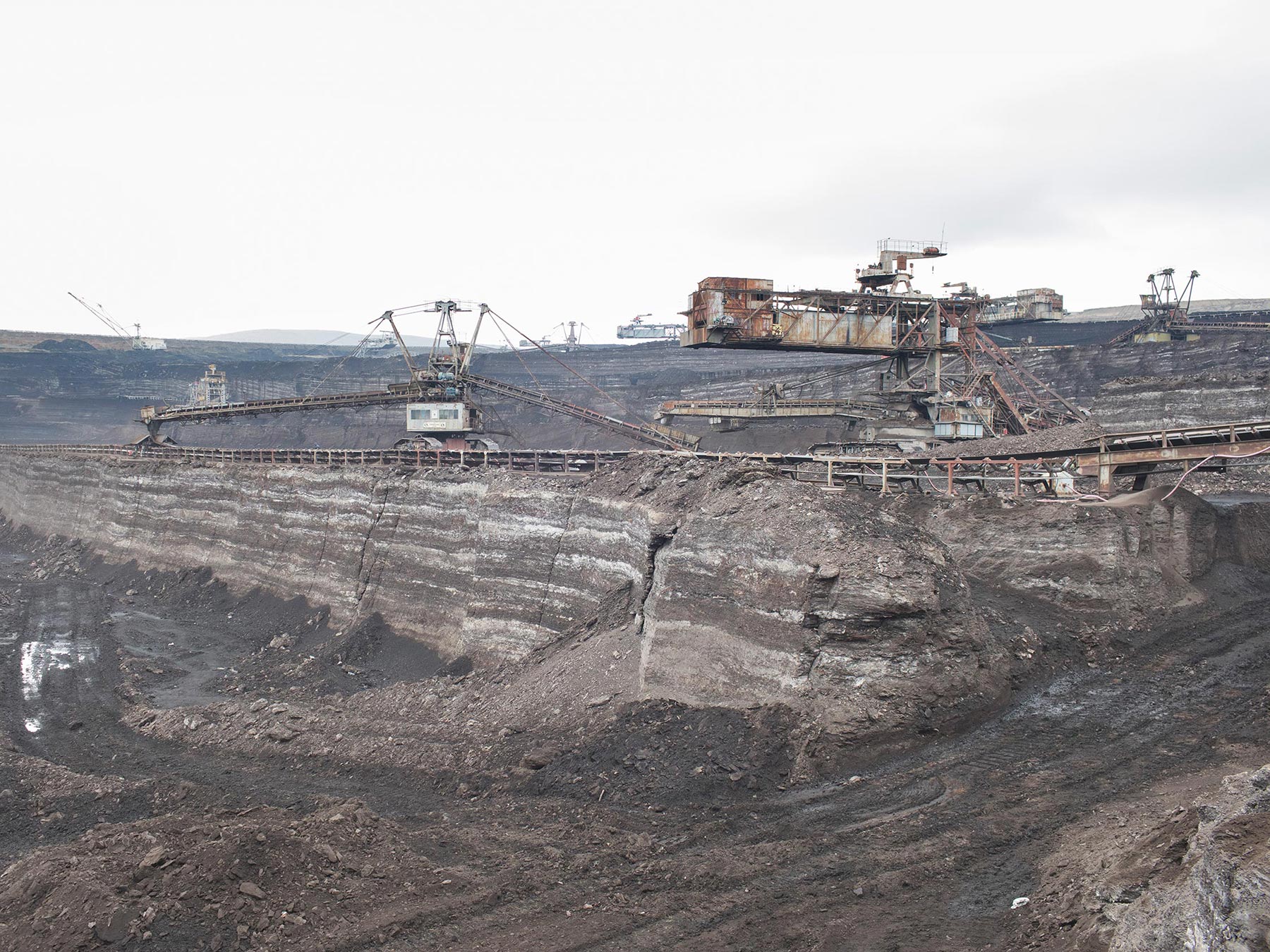
A view of the Sibovc coal mine located in Obiliq/Obilić, District of Prishtina/Priština. The mine, owned by KEK (Kosovo Energy Corporation) has coal reserves amounting to 1 billion tonnes of lignite, one of the largest lignite reserves in Europe.
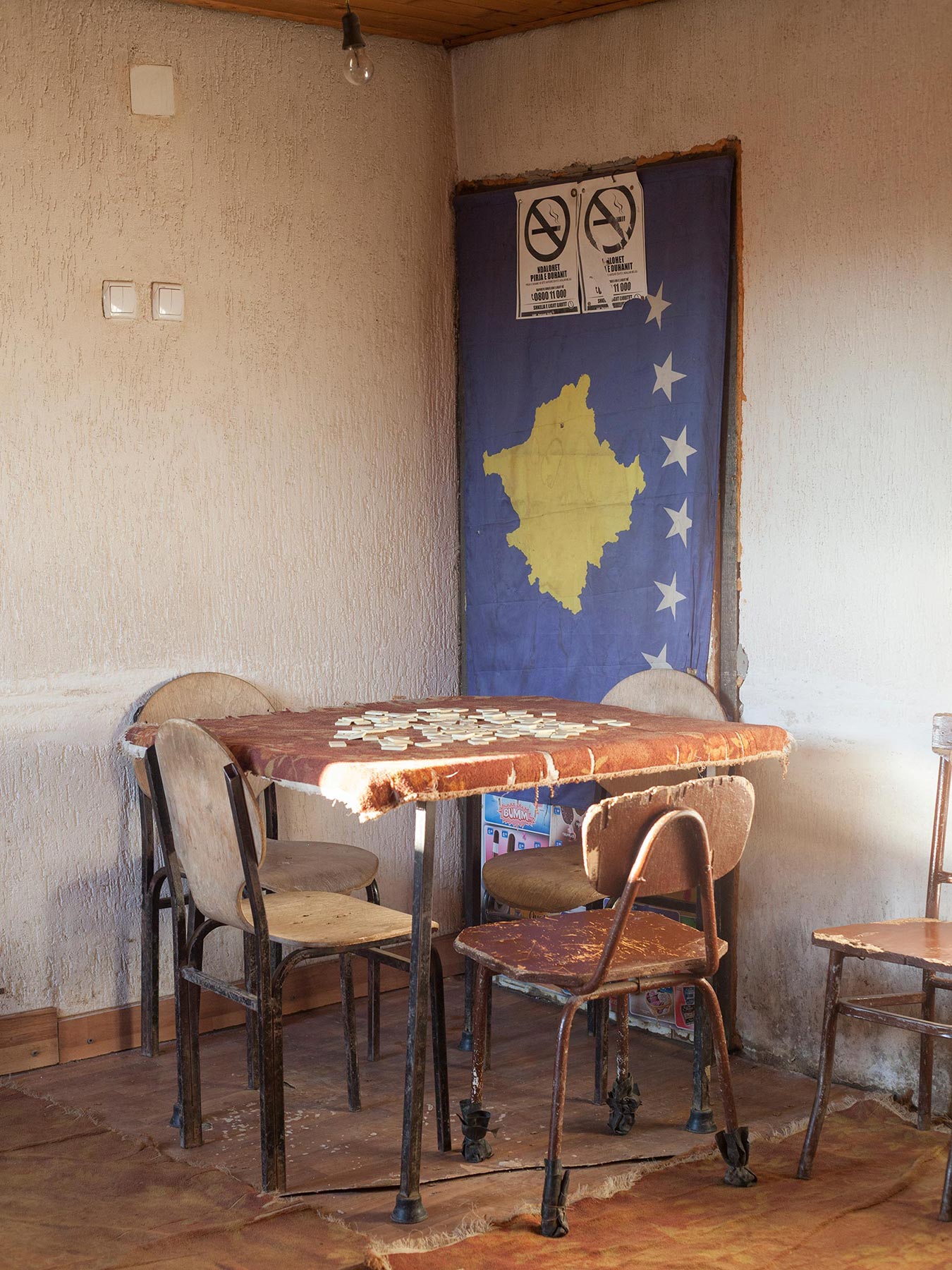
View of a cafe in the village of Rakinic, near Skënderaj/Srbica. The population of this region, a stronghold of the KLA (Kosovo Liberation Army) during the war, is considered very attached to the Albanian nationalistic values.
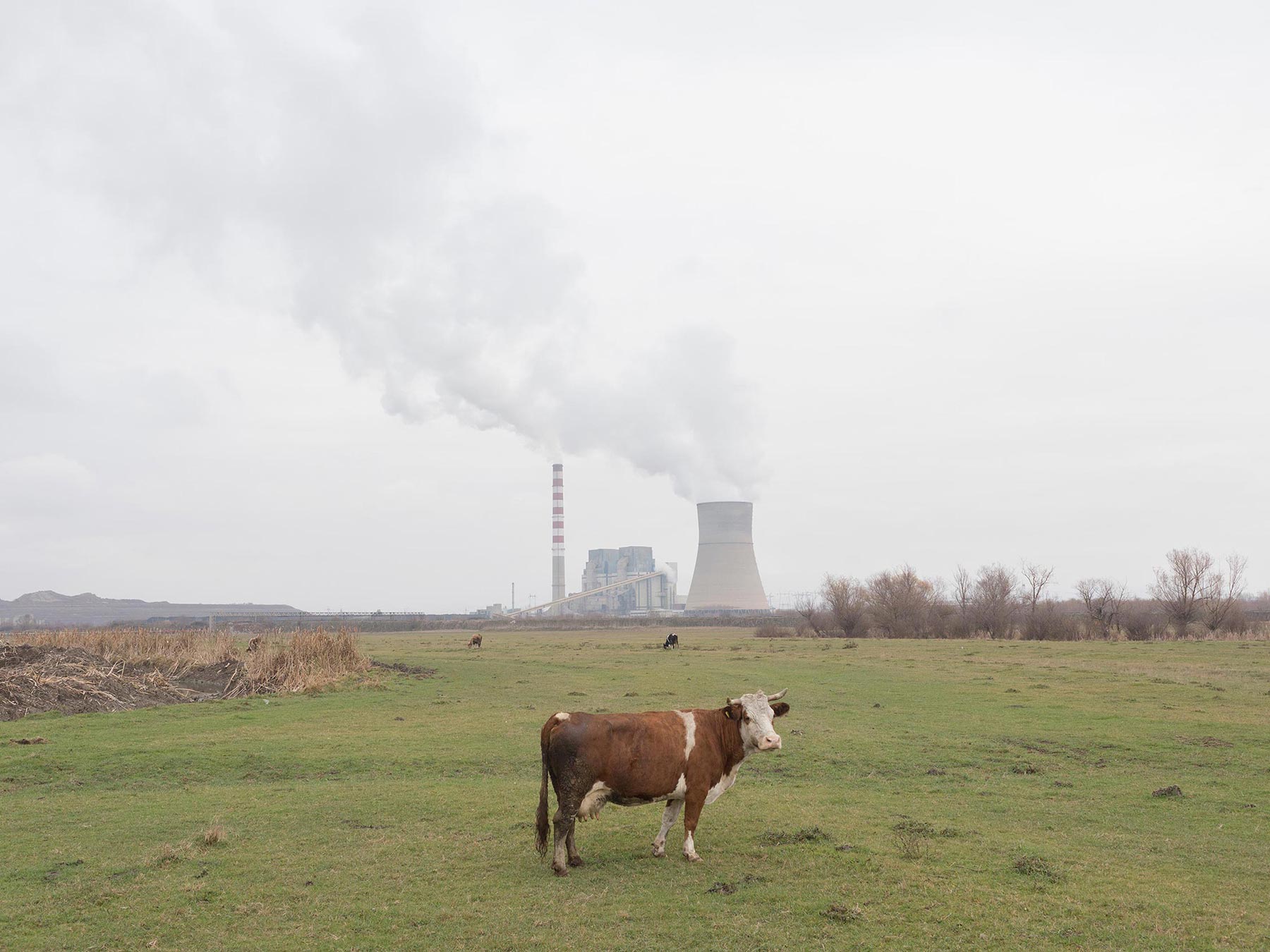
A cow grazing in front of the KEK power plant in Obiliq/Obilić. Powered by lignite, obsolete and lacking maintenance after the war, the plant is very inefficient and is one of the main sources of pollution in the area.
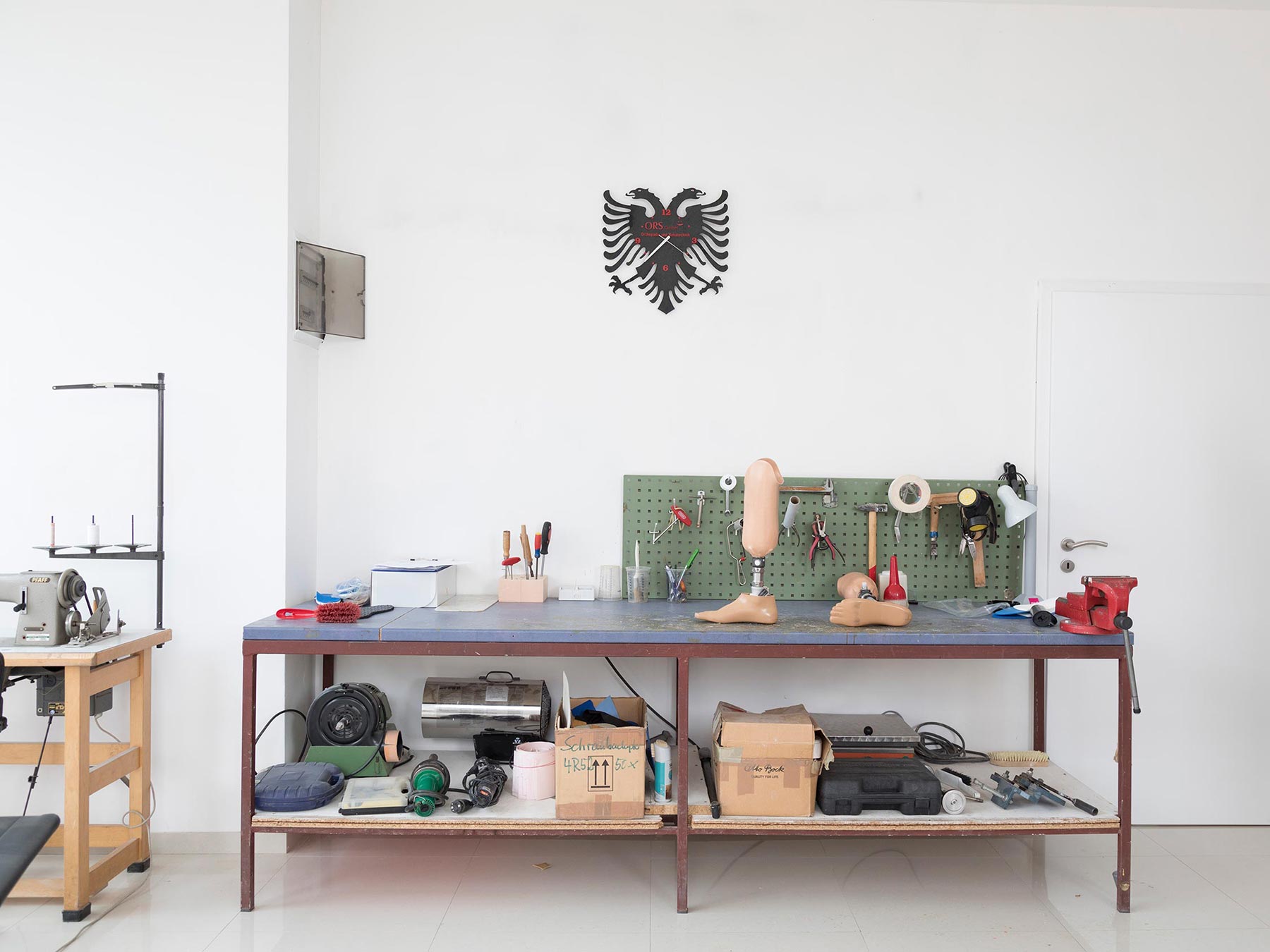
A working bench inside ORS, a company which manufactures prosthetic limbs and provides physiotherapy for invalids, most of which have lost limbs on landmines. There is no exact data regarding the number of land-mines victims in the country. According to ORS there are about 100 former UCK soldier and about 200 civilians, while many other have left the country to seek better cures. However according to the UN, there are about 10 civil invalids for each war invalid. In 2015 ORS provided free prosthetic limbs for about 40 civilians. Their cost is very high - from 2000 euros to 6000 euros - and the pension given by the government to civil invalids is about 70 euros/month.
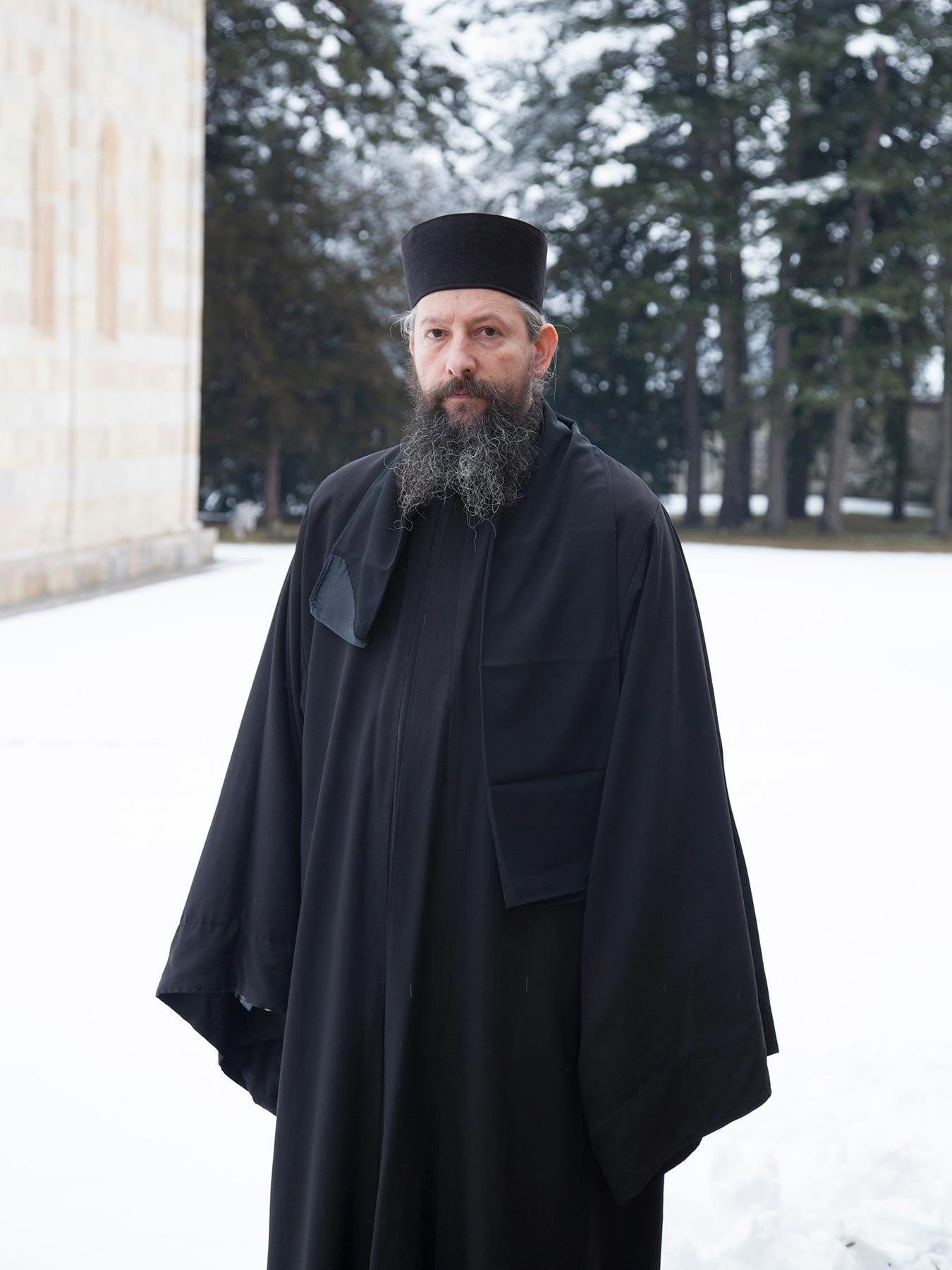
Father Peter, Orthodox Christian priest in the Deçan/Dečani Monastery. The monastery of the 14th century is considered one of the most important places for the Serbian cultural heritage.
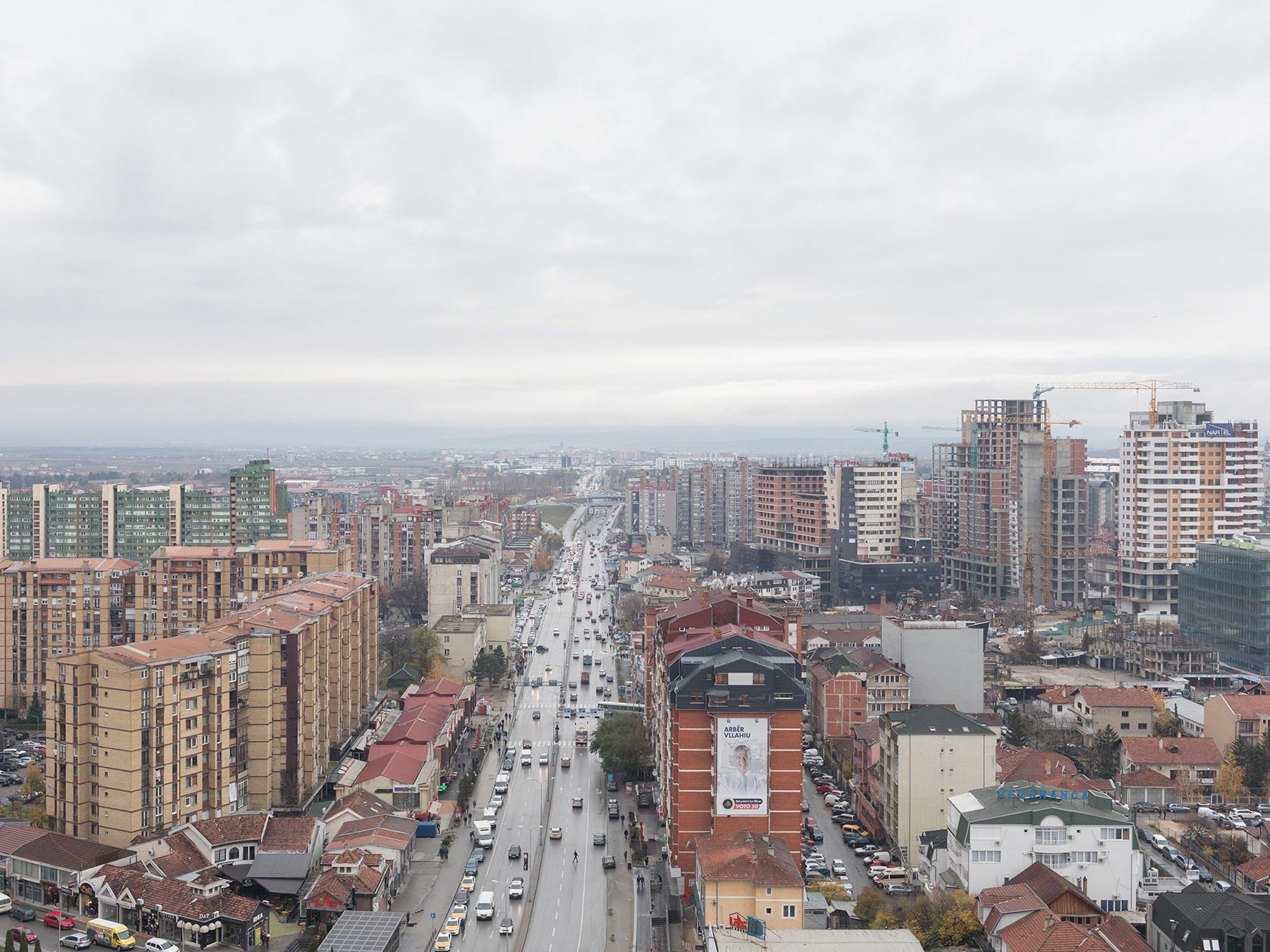
A view of Prishtina/Priština from the new St. Mother Theresea Cathedral, consecrated on September 5, on the 20th anniversary of the saint’s death. There are around 65,000 Catholics in Kosovo, out of a population of approximately two million. Most Kosovars are ethnic Albanians, like Mother Teresa. Almost 95 per cent are Muslim. The Holy See does not currently recognise Kosovo as a sovereign state.
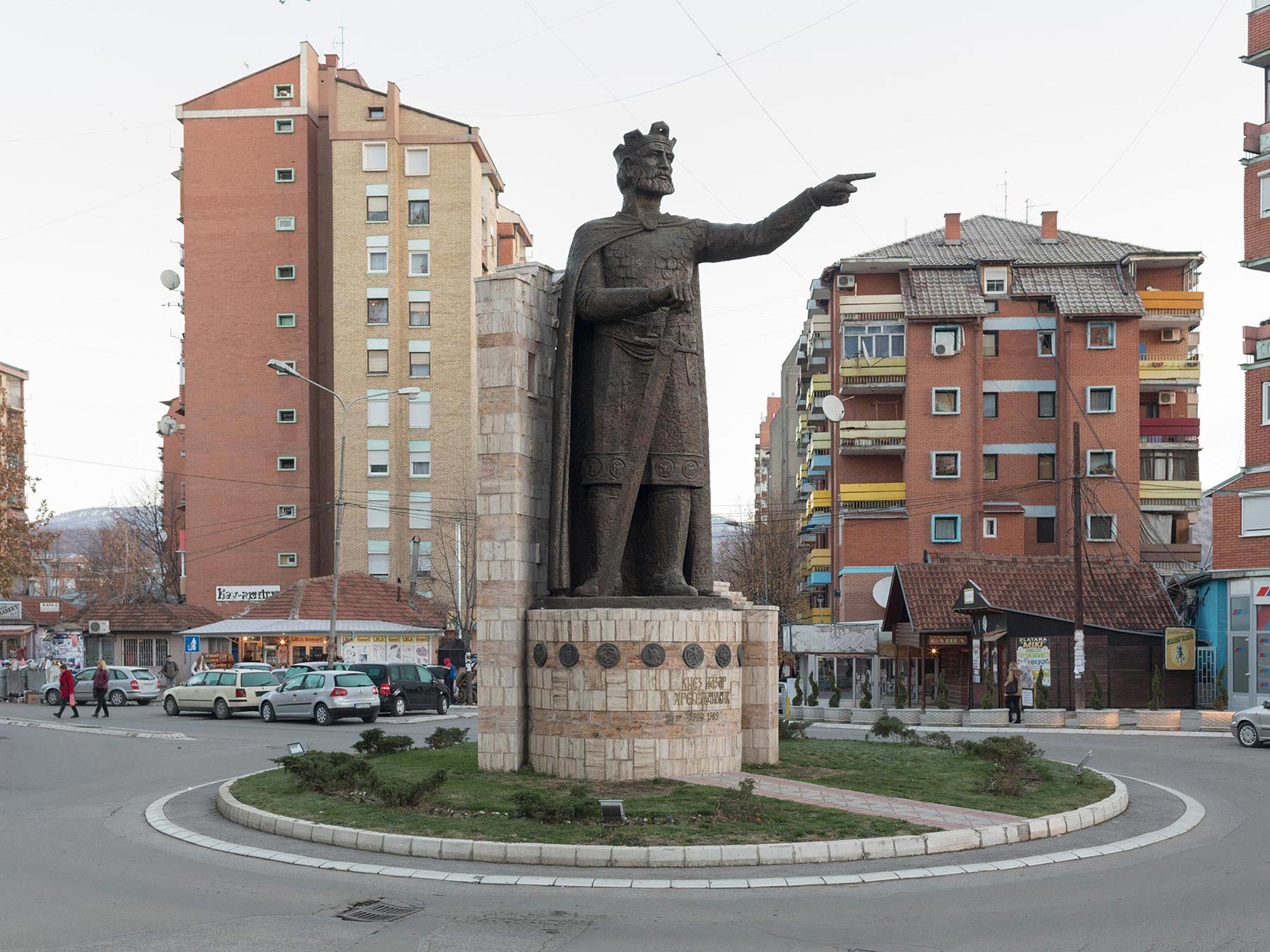
The statue of Prince Lazar Hrebeljanović, unveiled in 2016 in Serb-majority North Mitrovica/Kosovska Mitrovica. Lazar is a strong symbol of Serbian unity, venerated in the Orthodox Christian Church as a martyr and saint, and highly regarded in Serbian history and culture.
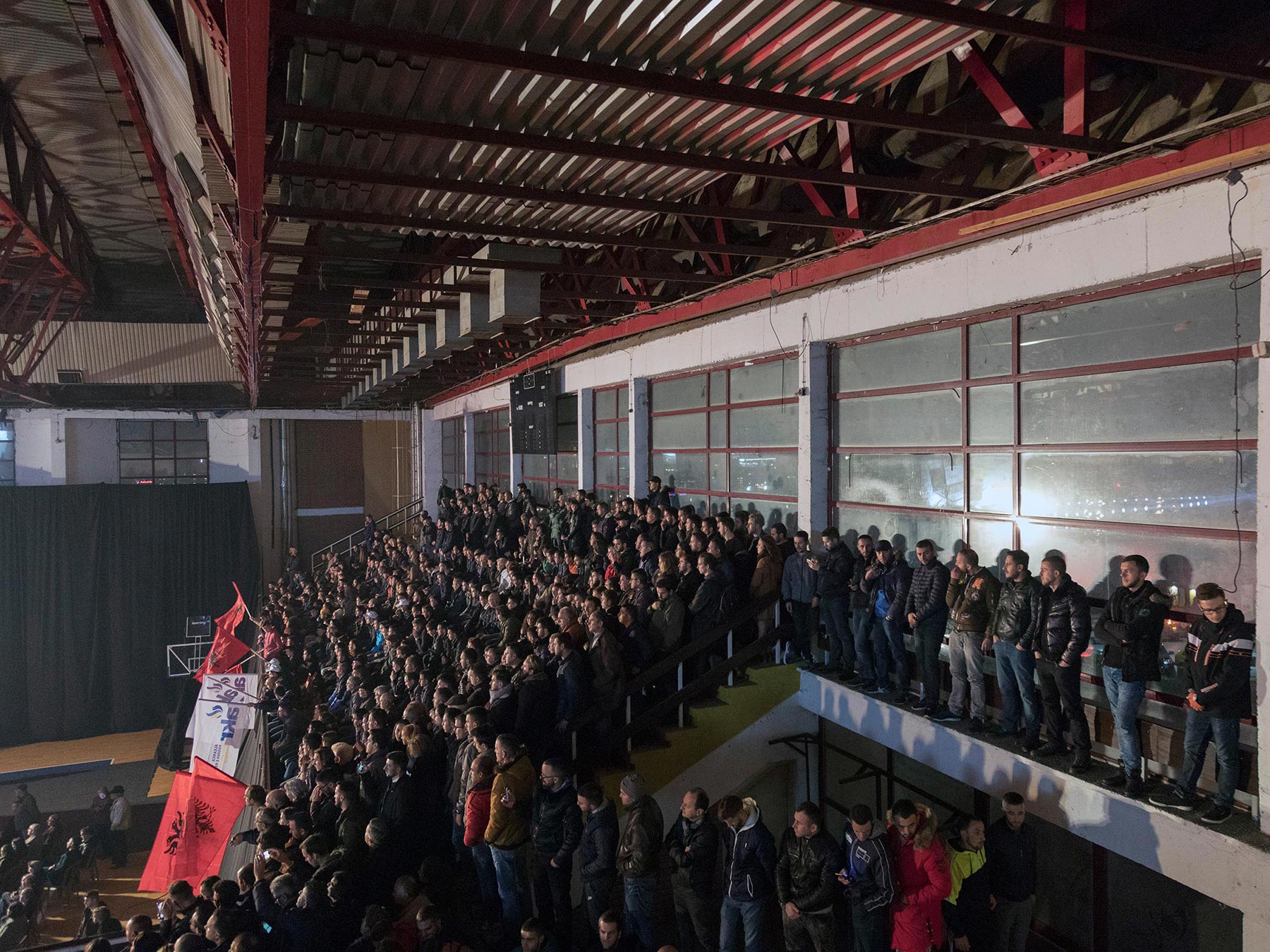
Supporters for Shpend Ahmeti, candidate for mayor of Prishtina/Priština for VeteVendosje party meet for a last rally before the Sunday ballot, which will be won by him.
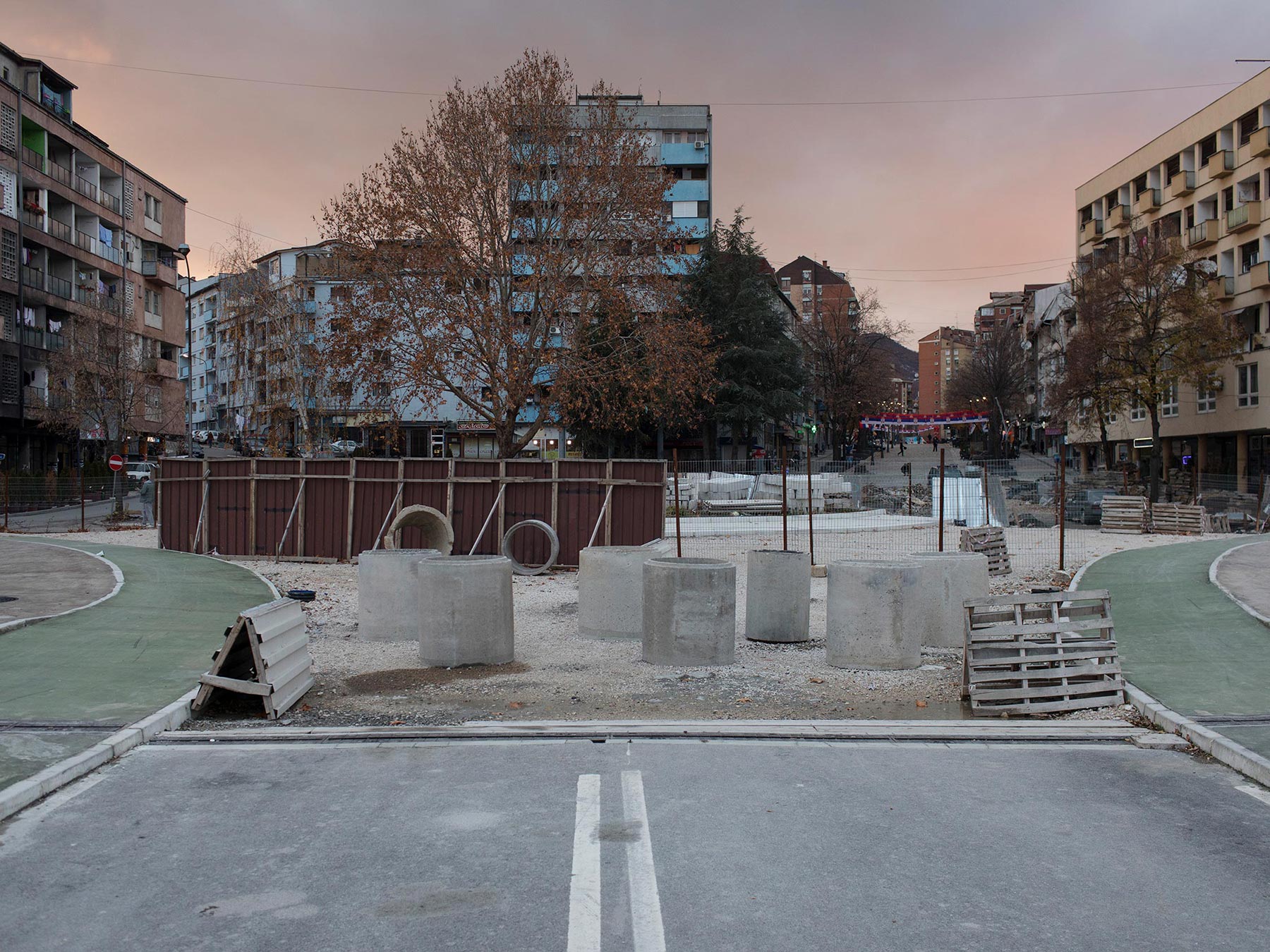
Construction works near the Ibar River Bridge in Mitrovicë/Kosovska Mitrovica on the North Side of the town.
Tearsheet
Publications on Newsweek Japan, L’Espresso and Io Donna

